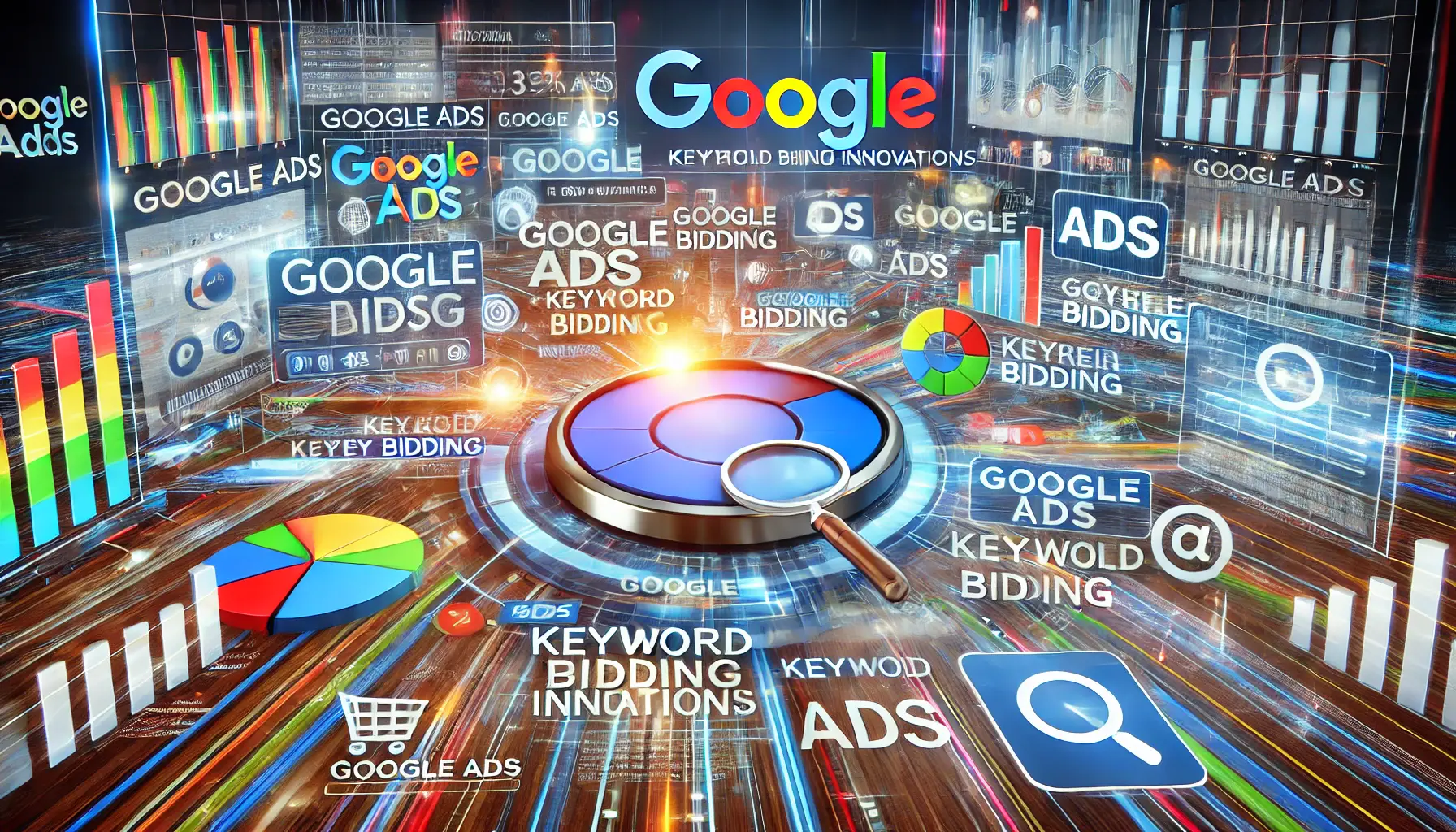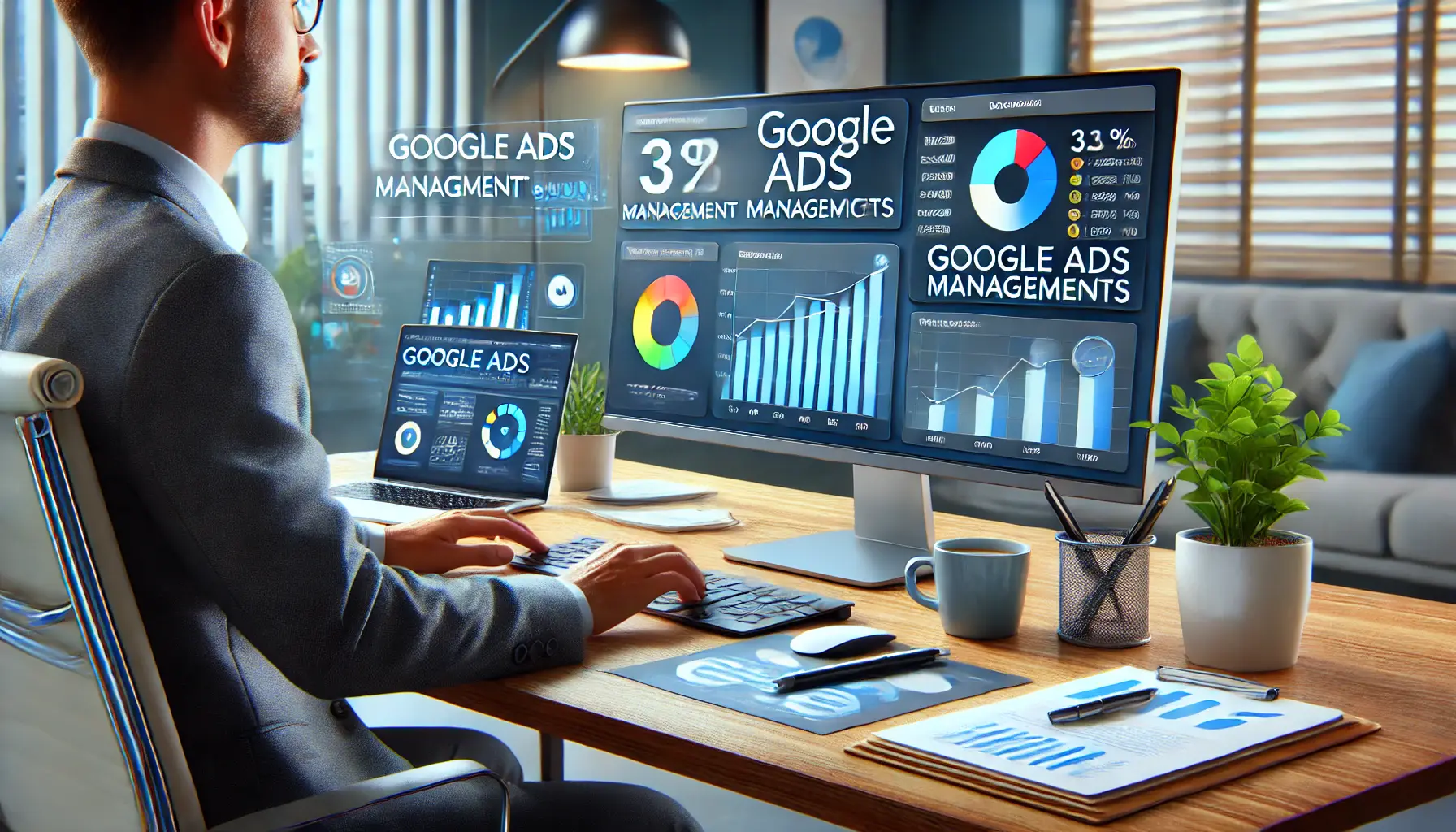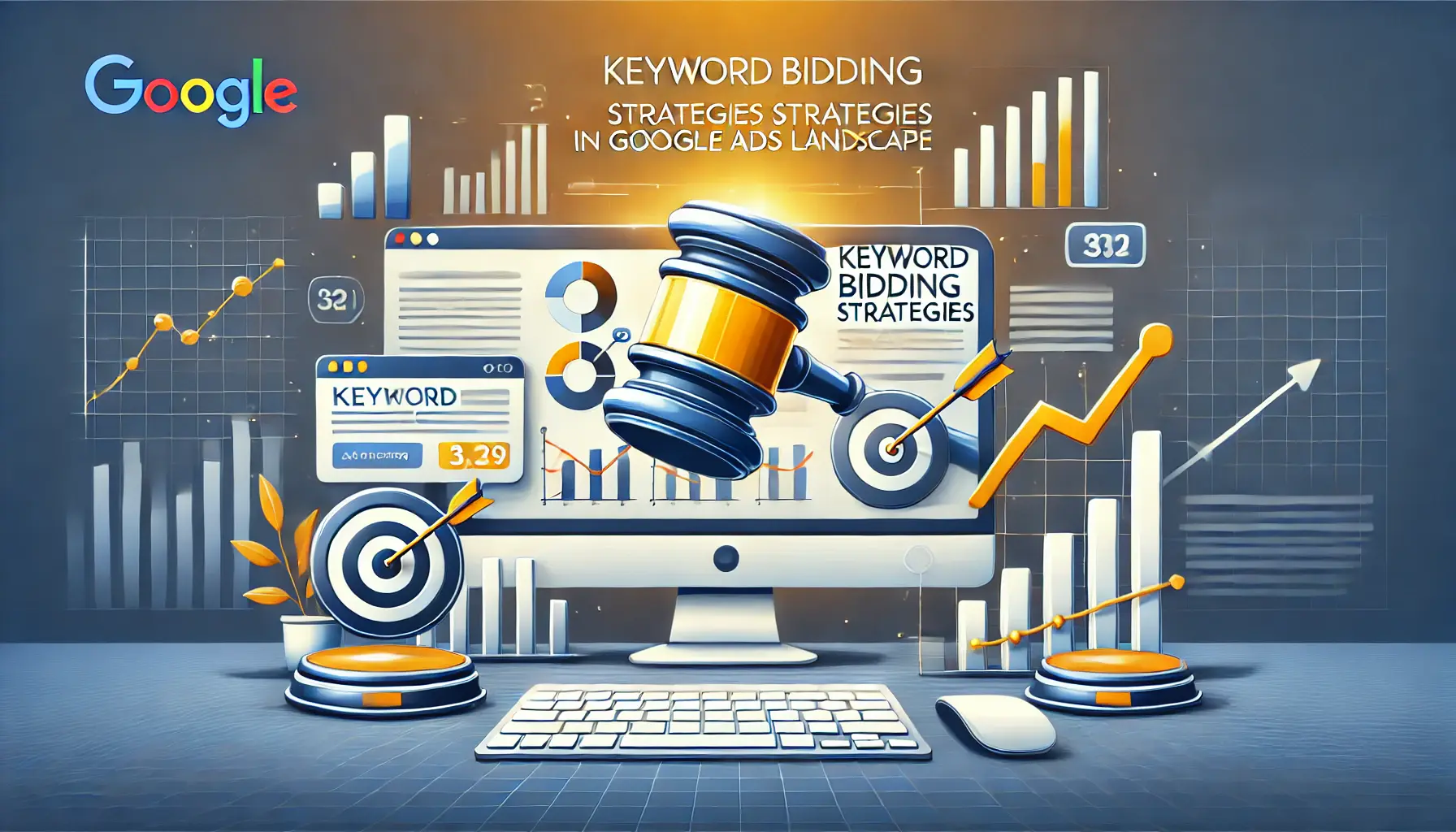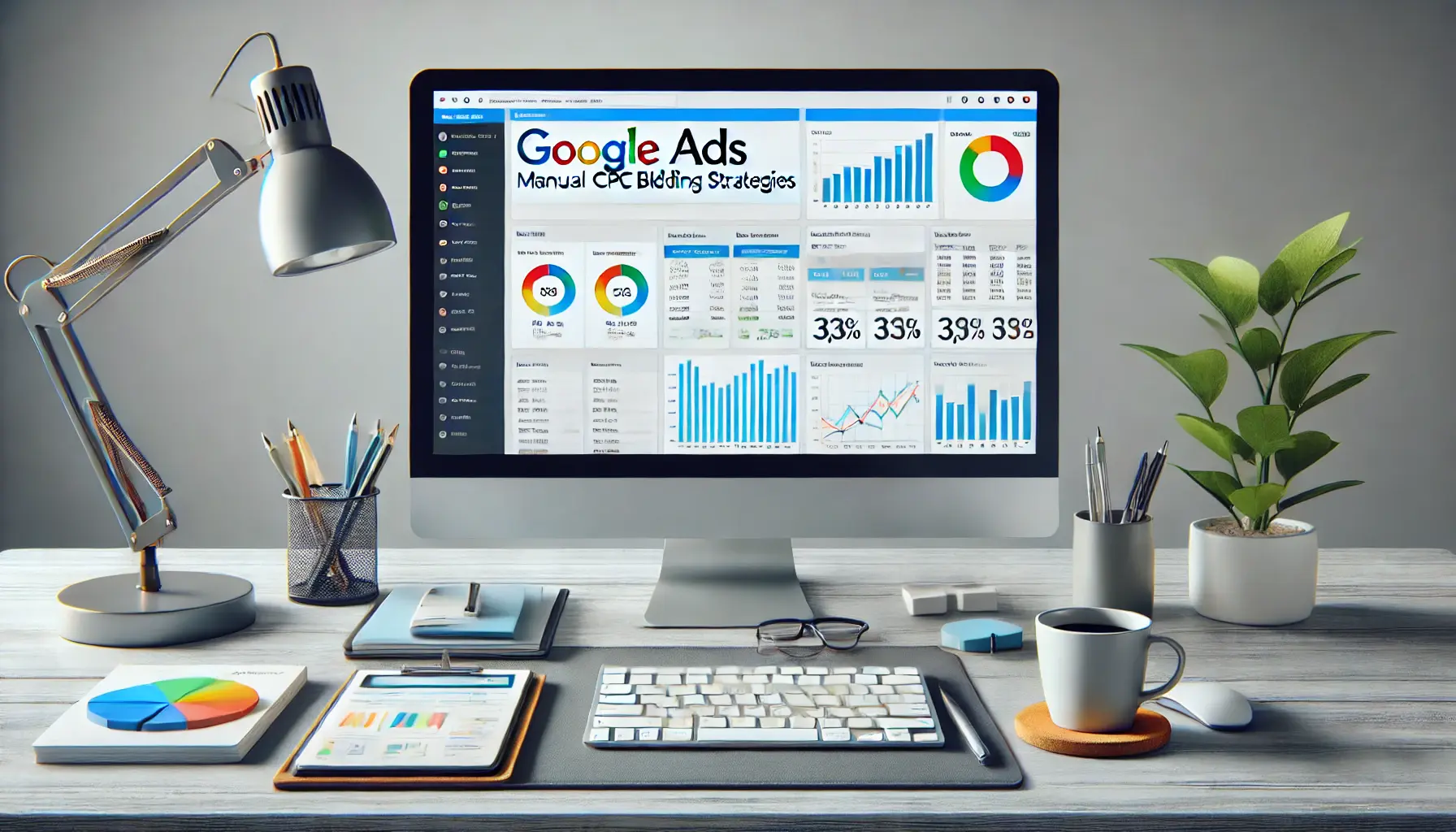One of the strongest tools in Google Ads is keyword bidding.
The management of the bid will highly affect the success rate of your ads and everything from ad appearance to cost-per-click.
With the platform continually in development, knowing the latest innovations in keyword bidding can make all the difference between being left in the dust or being among those at the top.
Next, we dive deep into the new-school strategies and technologies reinventing keyword bidding in Google Ads to get the most out of your marketing dollar.
Keyword bidding is just one of those things you need to understand in mastering Google Ads.
In simple terms, keyword bidding refers to the process of placing a bid on certain keywords relevant to your business.
Your ad enters a kind of auction when people search for these keywords, competing with other ads based on your bid price and the quality of your ad.
But this isn’t just about how much you are willing to pay.
The success of your keyword bidding depends on quite a few factors at your discretion.
For this, great insight is required into Google’s algorithmic process and how that algorithmA set of rules or processes followed by a computer to perform tasks. weighs bids against the relevance and quality of your ads.
You must understand the various strategies and tactics involved in keyword bidding for its proper utilization.
First and foremost, you should consider what kind of keyword bidding strategy befits your business goals.
For instance, are you trying to funnel more traffic toward your website or drive conversions?
Different strategies will help you reach different objectives, so it is important to align your keyword bidding method with your overarching marketing goal.
- What is Keyword Bidding?
- Emerging Trends in Google Ads Keyword Bidding
- Best Practices for Keyword Bidding Optimization
- Challenges and Solutions to Keyword Bidding
- What Google Ads’ Keyword Bidding Looks Like in the Future
- Final Words on Keyword Bidding in Google Ads
- Keyword Bidding in Google Ads – Frequently Asked Questions
What is Keyword Bidding?
Keyword bidding at its core is a way for advertisers to place their ads in front of users who are actively seeking out terms related to the products or services they offer.
For each keyword, you set a maximum bid—the most you’re willing to pay—when your ad gets clicked.
Google then compares your bid with others in an auction format, and the highest bidder typically wins the ad placement, though other factors like ad relevance and quality score also play crucial roles.

Understanding the relationship between keyword bidding and ad performance.
How Keyword Bidding Affects Ad Performance
Your keyword bidding decisions will directly impact your ad performance.
Higher bids can lead to better ad placements, but that doesn’t necessarily mean they are more effective.
Quality scores, which factor in things like ad relevance and user experience, are just as important as the bid itself.
Therefore, a lower bid with high-quality scores can outbid others that have higher bids but poor relevance.
Successful advertisers focus on balancing both to achieve the best results.
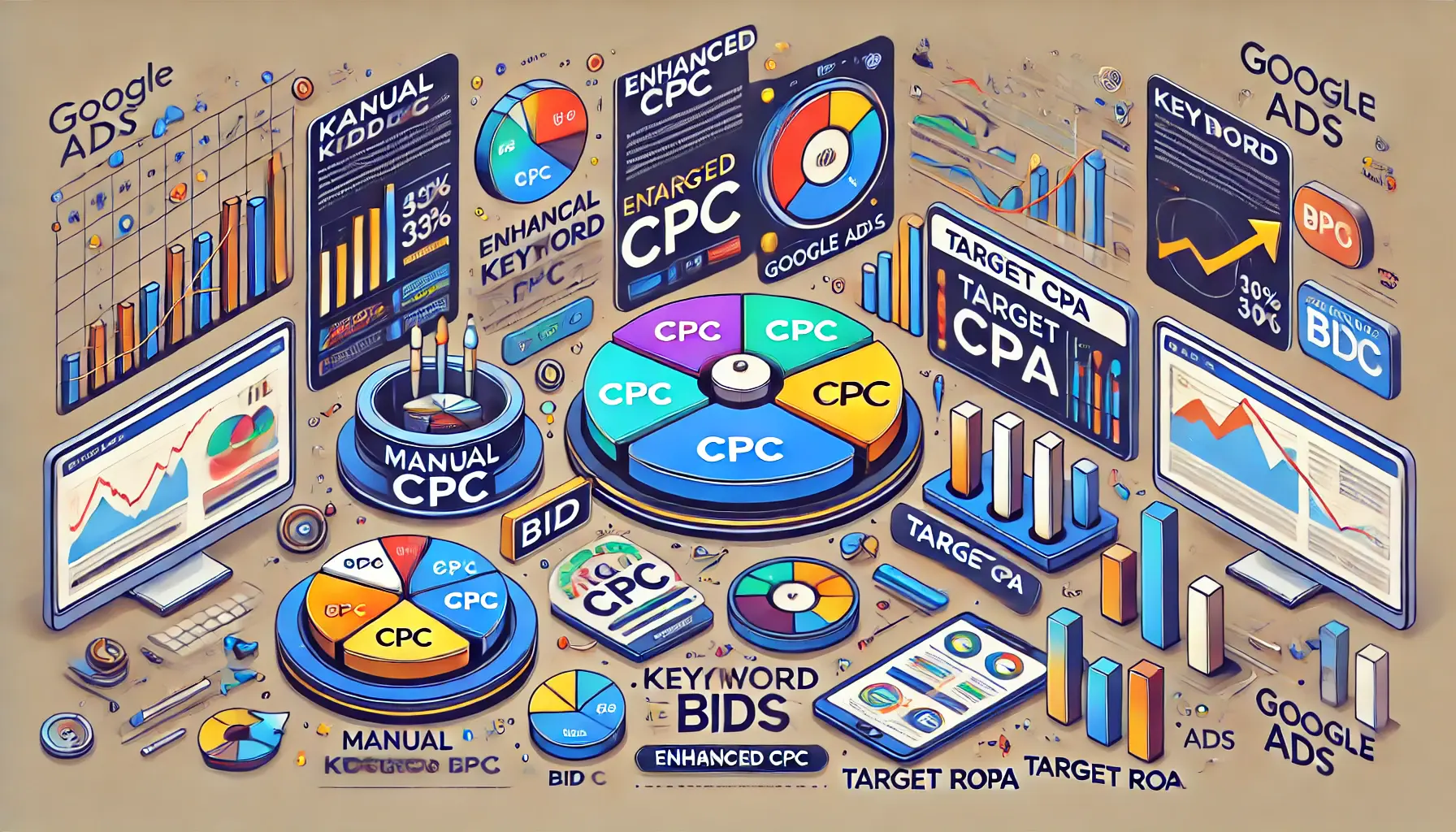
Exploring the various keyword bidding strategies in Google Ads.
Different Types of Keyword Bids
In Google Ads, there are several types of keyword bids to choose from, each with its advantages depending on your campaign goals.
These include:
- Manual CPC: This enables you to set your bid for each keyword and gives you full control over how much money is spent.
- Enhanced CPC: Google automatically adjusts your bids based on the likelihood of a conversion and offers a semi-automated way of bidding.
- Target CPA: Google optimizes your bids for an average cost per acquisition that you have set as your goal.
- Target ROAS: If your focus is on maximum return, this strategy will adjust the bids for an exact return on ad spend.
Understanding these options helps in choosing the right keyword bidding approach to meet your business goals and maximize the effectiveness of your budget.
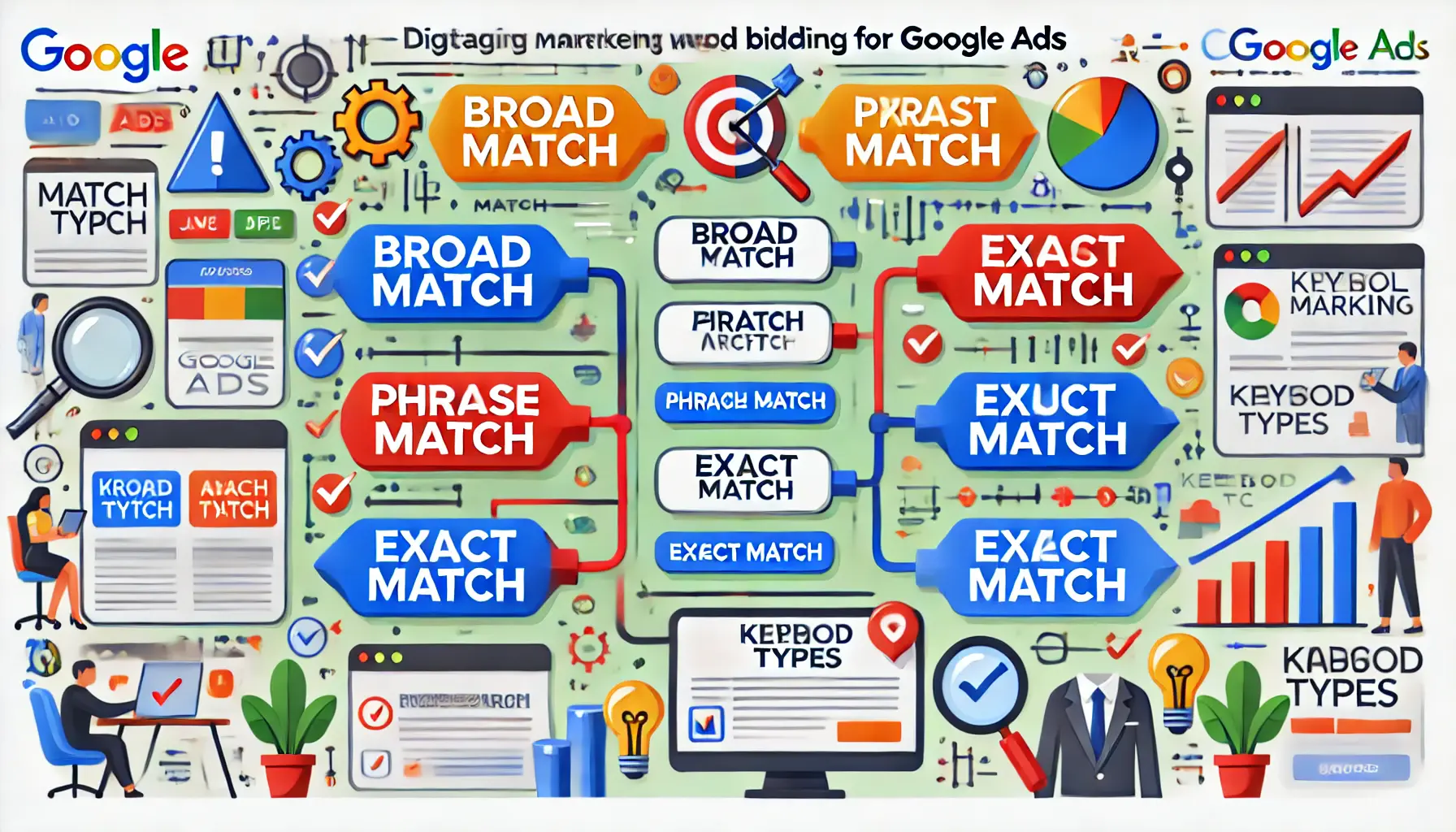
Understanding the significance of match types in keyword bidding strategies.
Importance of Matching Types in Keyword Bidding
Another important aspect of keyword bidding is understanding match types.
Match types control how closely the user’s query needs to match your keyword for your ad to trigger.
Google offers various match types, including:
- Broad Match: This is the most flexible, allowing your ad to appear for searches related to your keywords without needing to precisely match.
- Phrase Match: This setting will make your ad appear for searches that include the meaning of your keyword phrase.
- Exact Match: It ensures that your ad appears only when users search precisely for that keyword or close variations.
Choosing the right match type helps ensure your ads reach the most relevant audience while keeping your keyword bids competitive.
Keyword bidding lets advertisers place their ads in front of users seeking terms related to their business.

Exploring the innovative trends shaping the future of keyword bidding in Google Ads.
Emerging Trends in Google Ads Keyword Bidding
Better technology begets better strategy, and this is no exception when it comes to keyword bidding in Google Ads.
Keeping up with these emerging trends can help you leverage new tools and approaches that maximize ad performance and your marketing dollar.
Let’s talk through some of the most important trends that are rewriting the world of keyword bidding.

Understanding the role of automation and machine learning in optimizing keyword bidding strategies.
Automation and Machine Learning in Bidding
One of the biggest shifts in keyword bidding has to do with the increasing use of automation and machine learning.
Google Ads has integrated automated bidding strategies, including Smart BiddingAn automated bidding strategy in Google Ads that uses machine learning to optimize bids., which enables machine learning to optimize your bids in real time.
These algorithms analyze hundreds of signals, including device, location, time of day, and past behaviors, to compute the optimal bid for each auction.
Automation is a significant shift in how advertisers manage their bids, freeing them to focus more on strategy rather than manual adjustments.
Machine learning has made it much easier for businesses to optimize campaigns for better results without requiring deep expertise.
By utilizing this technology, advertisers can let Google handle the heavy lifting, optimizing for conversions, clicks, or other desired actions with minimal input.
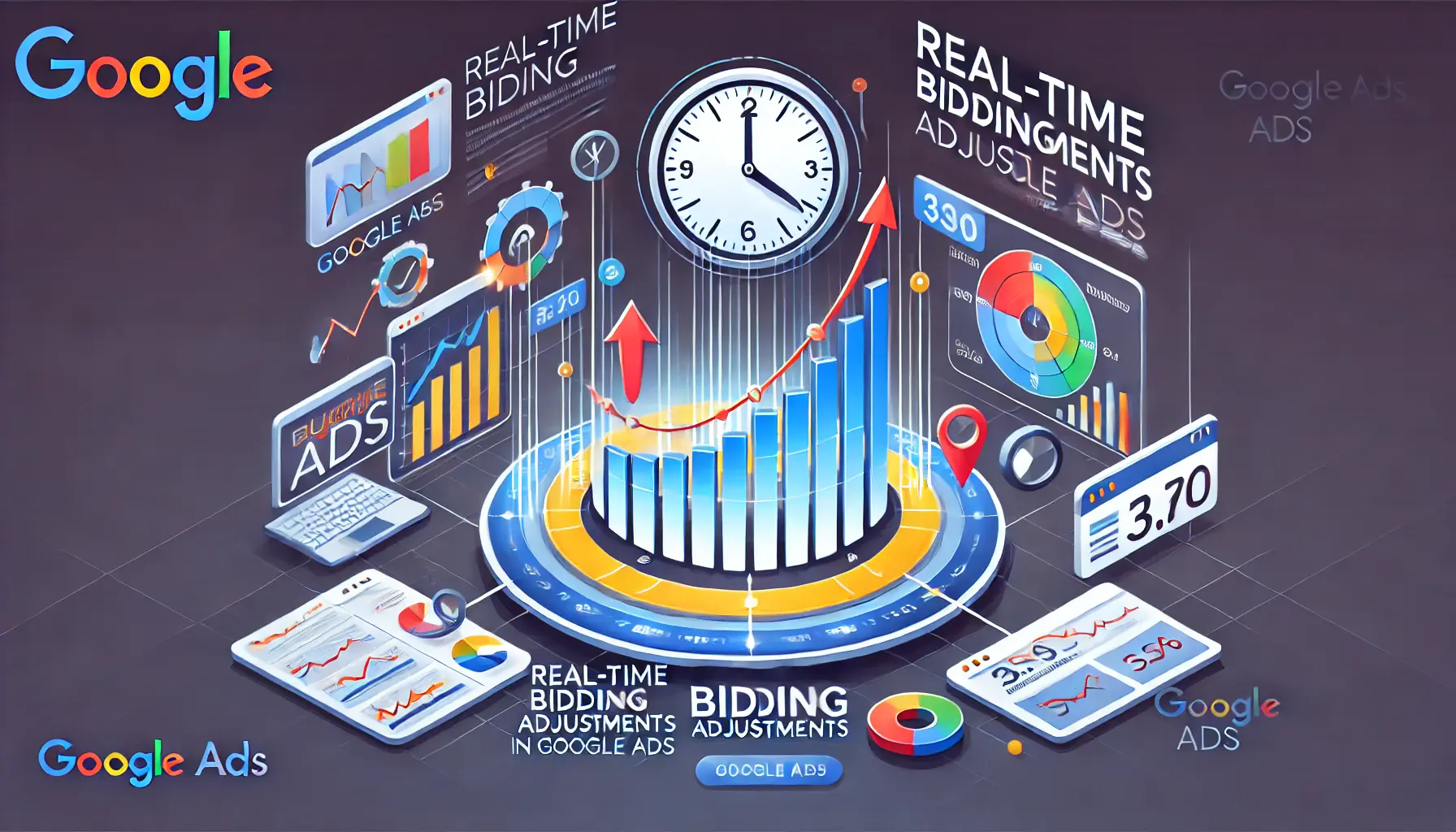
Exploring the concept of real-time adjustments in keyword bidding.
Real-Time Bidding Adjustments
Real-time bidding adjustments are another significant innovation in keyword bidding.
With the help of automation, advertisers can now modify their bids based on current conditions in real time.
For instance, if a keyword starts trending or if an audience is most active at a specific time of the day, Google Ads automatically adjusts your bid for those moments.
This allows you to capture moments of interest or relevance without needing to monitor your campaigns constantly.
These real-time adjustments lead to more efficient ad spending and higher returns on investment.
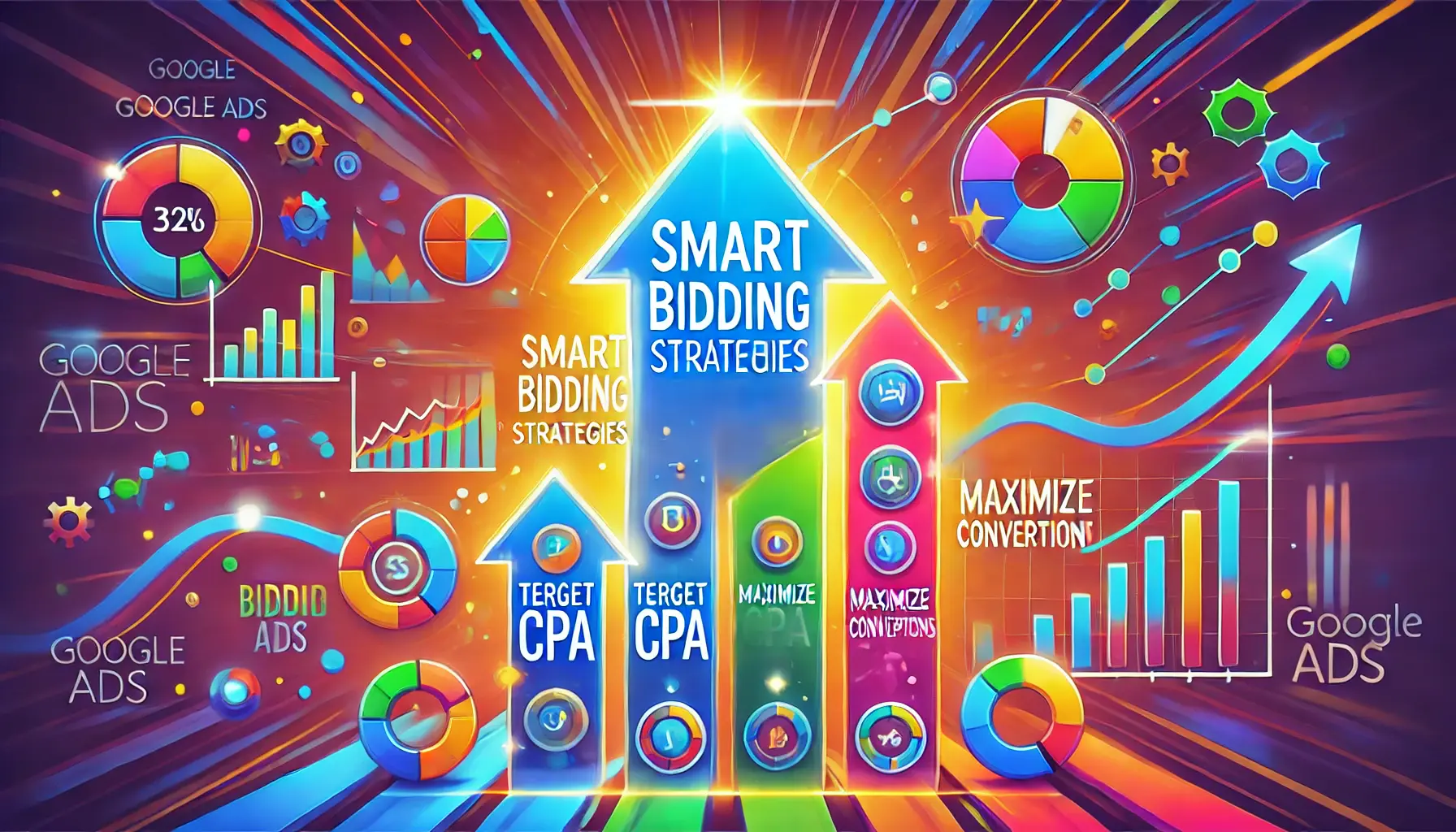
Understanding the growth potential of Smart Bidding strategies in Google Ads.
Smart Bidding Strategies: Upward Trajectory
The growing adoption of Smart Bidding strategies is another trend.
This set of automated bidding options is designed to optimize for specific goals, such as maximizing conversions or achieving a target return on ad spend (ROASReturn on ad spend, a performance metric that measures the revenue earned for every dollar spent on advertising.).
The most common Smart Bidding strategies include:
- Target CPA (Cost per Acquisition): Aims to optimize your bids to reach a specific cost per acquisition, ideal for businesses focused on driving conversions.
- Target ROAS (Return on Ad Spend): Adjusts bids to maximize return based on the revenue generated by your ads.
- Maximize Conversions: Uses Google’s algorithm to get as many conversions as possible within your budget.
- Maximize Clicks: Focuses on getting the most clicks for your budget, helpful for businesses looking to increase website traffic.
With the rise of these Smart Bidding options, businesses can select whichever strategy best meets their needs and rely on Google’s machine learning to handle the bidding process.

Exploring the transformative effects of AI on keyword bidding strategies in Google Ads.
Impact of AI on Keyword Bidding
Artificial Intelligence (AI) continues to play a pivotal role in improving keyword bidding.
AI-powered tools provide advertisers with predictive analysis, optimal bidding strategies, and better targeting.
AI analyzes large volumes of data in real time, offering insights and recommendations that would take humans much longer to process.
This can include predicting the likelihood of conversionWhen a user takes a desired action, such as making a purchase or signing up for a newsletter, as a result of clicking an ad. or identifying new opportunities for high-performing keywords.
As AI keeps evolving, it will continue reshaping how advertisers approach keyword bidding and campaign management.
To stay ahead, your business needs to remain up-to-date with these emerging trends in keyword bidding.
Automation, real-time bidding, Smart Bidding, and AI will continue to elevate advertising to new levels of efficiency and effectiveness.
Leveraging automation and machine learning tools like Smart Bidding optimizes keyword bidding.
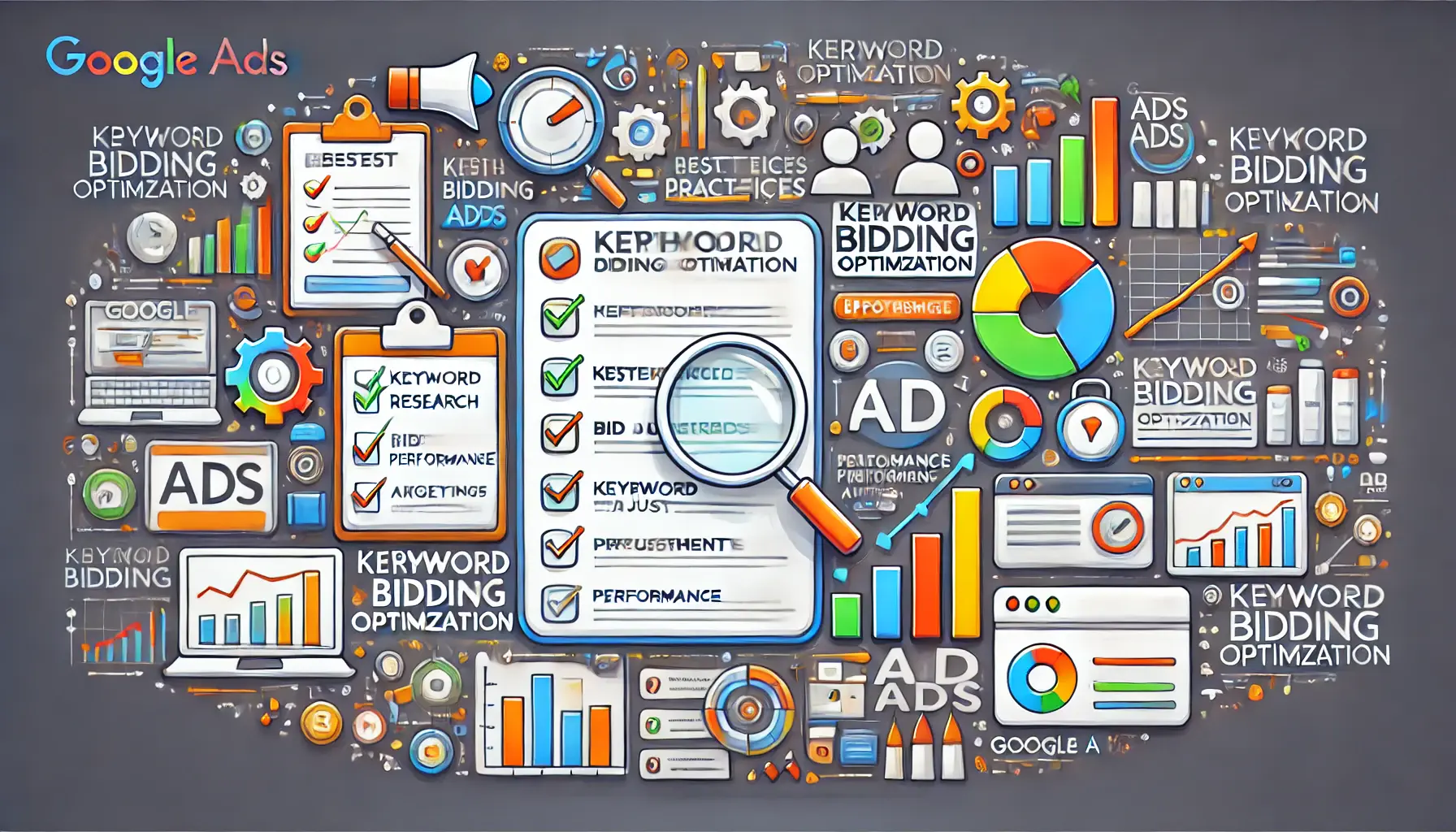
Exploring effective strategies for optimizing keyword bidding in Google Ads.
Best Practices for Keyword Bidding Optimization
Keyword bidding optimization forms a crucial part of Google Ads campaigns.
As competition increases and costs fluctuate unpredictably, businesses need to adopt best practices to ensure their ads are reaching the right audience and delivering strong returns on investment.
In this section, we are going to discuss several key strategies to maximize your keyword bidding and get the most value out of your ad spend.

Understanding the importance of keyword selection for optimizing ad performance and ROI.
Choosing the Right Keywords for Maximum ROI
Picking the right keywords is the foundation of effective keyword bidding.
It’s not just about volume; relevance is what truly matters.
High-traffic keywords may seem attractive, but they could exhaust your budget if they’re not aligned with your business offerings.
With tools like Google Keyword Planner, you can identify high-value, low-competition keywords that generate qualified traffic.
Focusing on keyword intent and aligning your bids with what your target audience is searching for allows you to maximize your return on investment.
Additionally, incorporating long-tail keywords, which are more specific and less competitive, can further strengthen your strategy.
These types of keywords often come with lower CPCCost-per-click, a metric used in paid advertising to determine the cost incurred when an ad is clicked. and may convert better, as they typically target users who are further along in the buying cycle.
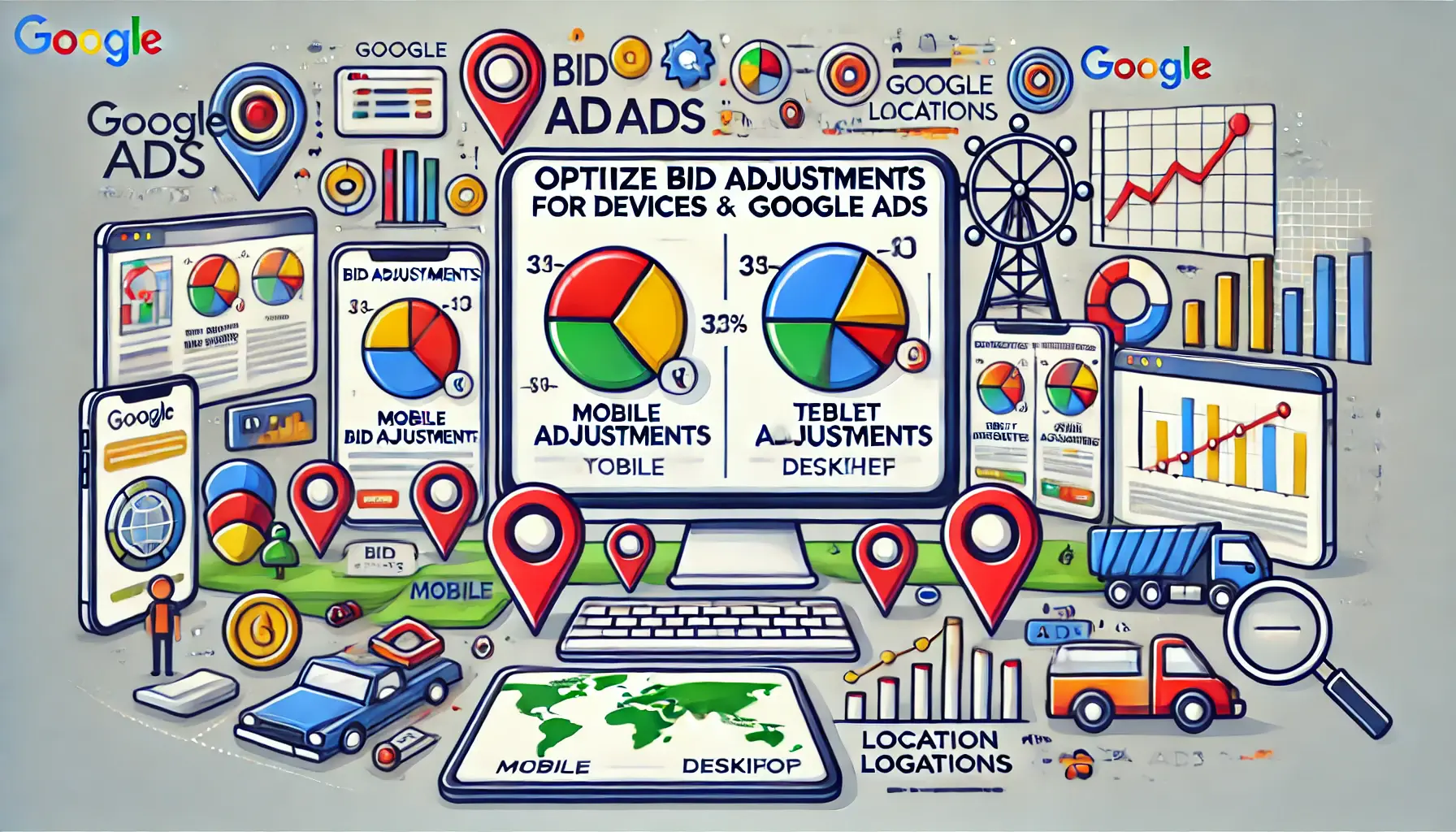
Strategies for optimizing bid adjustments based on device performance and geographical targeting.
How to Optimize Bid Adjustments for Devices and Locations
Bid adjustments allow you to extend your keyword bids based on factors such as devices, locations, and even time of day.
For example, you may find that mobile users convert more effectively than desktop users for certain campaigns.
You can capitalize on this by increasing your mobile bid adjustment.
Similarly, location-based adjustments can optimize your campaigns based on where you see higher engagement or conversion rates.
By continuously analyzing performance, you’ll be able to determine how to make bid adjustments across different segments, optimizing your ad spend while ensuring that the most relevant audience sees your ads at the right time.
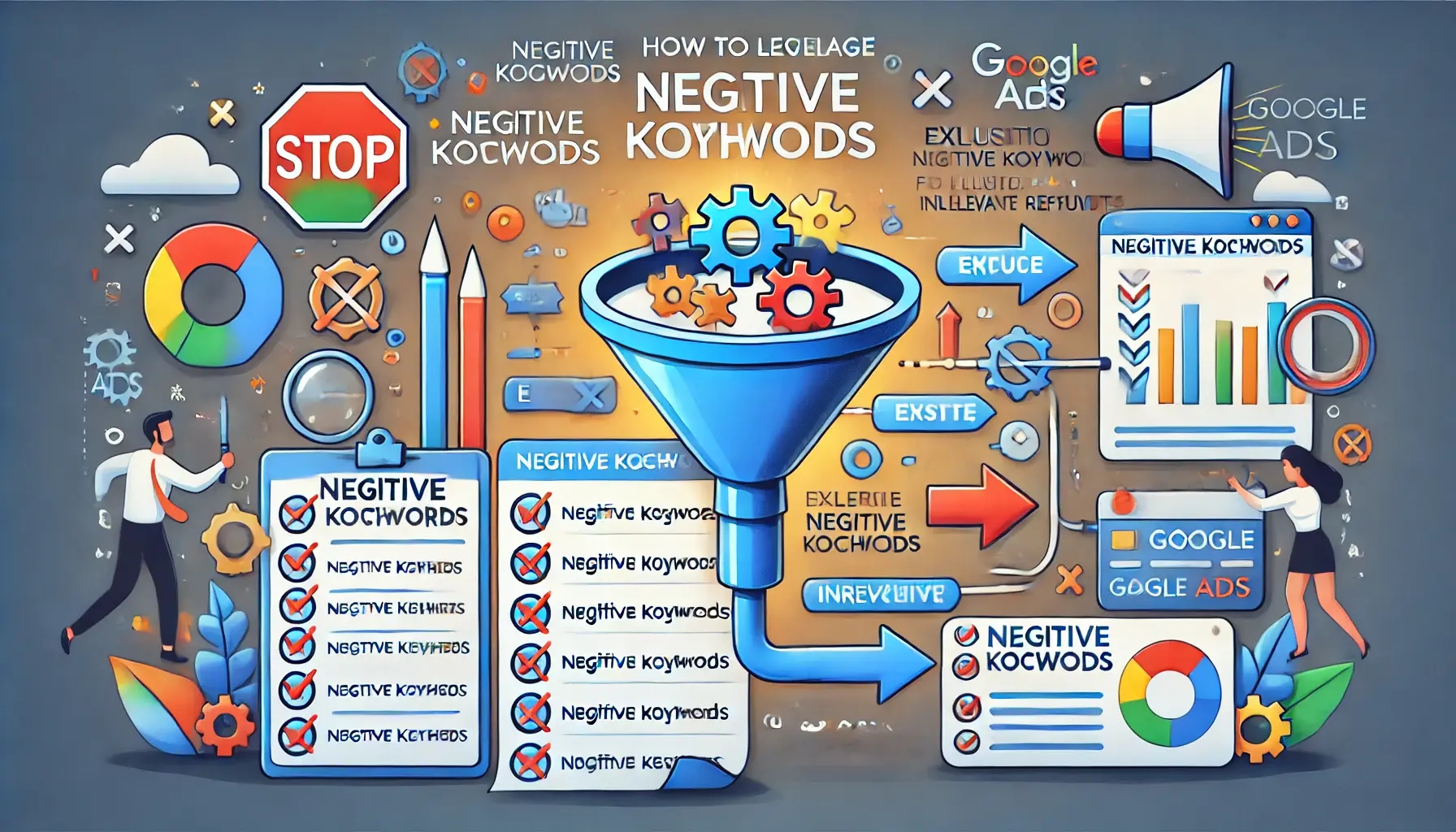
Strategies for effectively using negative keywords in Google Ads.
How to Leverage Negative Keywords
One of the most underrated aspects of keyword bidding is the use of negative keywords.
Negative keywords prevent your ads from appearing for irrelevant search queries that aren’t related to your product or service.
This helps save costs by avoiding clicks from users who are unlikely to convert.
For instance, if you sell luxury electronics, you may want to add terms like “cheap” or “free” as negative keywords to avoid showing your ads to users searching for lower-cost options.
Continuously updating and expanding your negative keyword list based on search term reports helps keep your ad targeting as precise as possible.
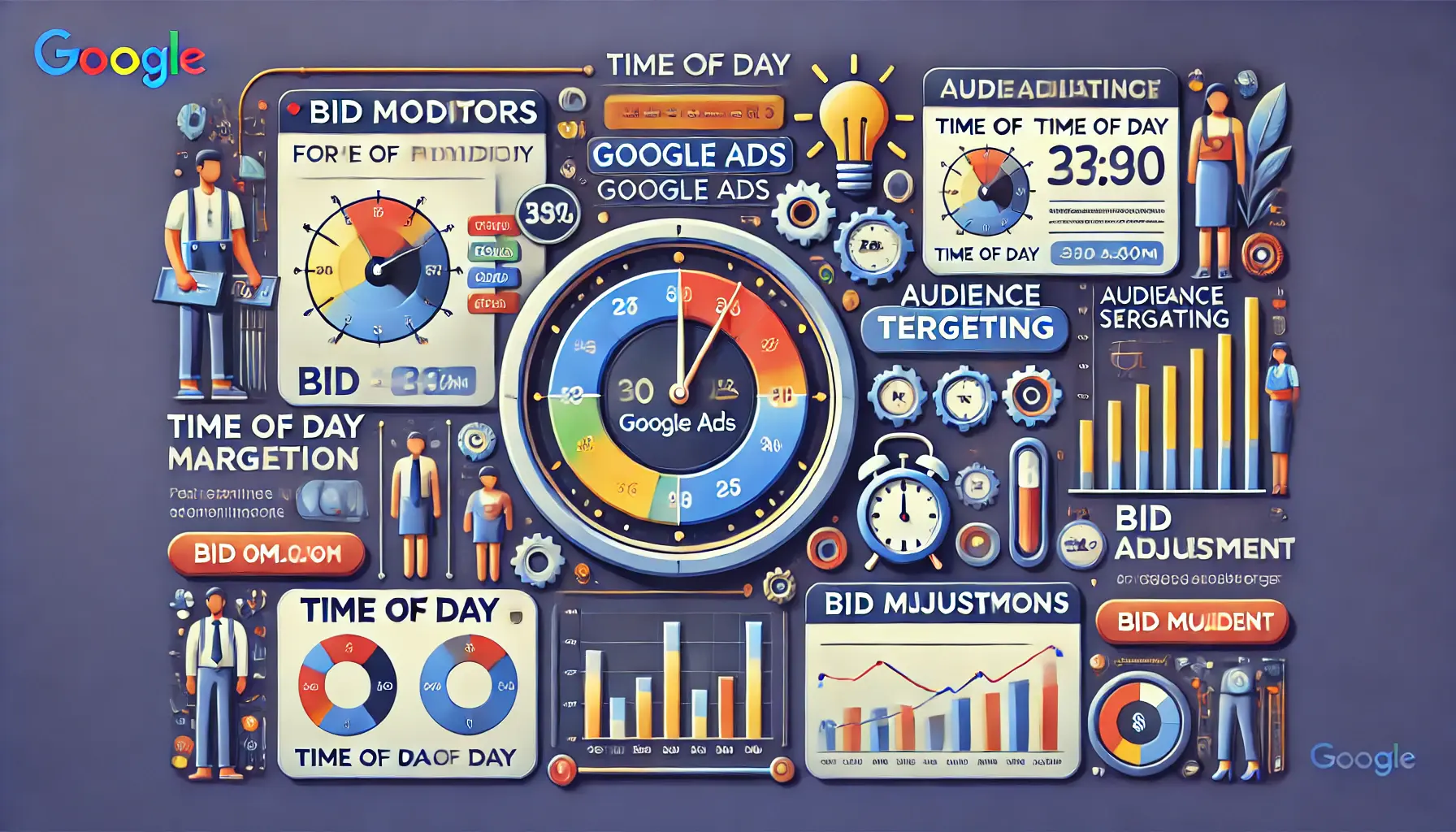
Strategies for optimizing ad campaigns using bid modifiers for timing and audience.
Using Bid Modifiers for Time of Day and Audience
Google Ads enables you to adjust your bids based on the time of day, which is a highly effective way to maximize performance.
By analyzing when your target audience is most active, you can increase your bids to ensure your ads appear during peak hours.
For example, if your audience is more likely to engage with your ads in the afternoon, you should increase your bids during those hours to capture more traffic and conversions.
Audience bid modifiers are another useful tool.
By identifying different audience segments, such as returning customers or users who have previously visited your website, you can adjust your bids to prioritize high-value users.
These bid modifiers allow you to spend your ad budget more efficiently by targeting users who are most likely to convert.
The importance of performance tracking and optimization in Google Ads campaigns.
Performance Tracking and Continuous Optimization
Keyword bidding optimization doesn’t end once your campaigns go live.
Continuous performance tracking is essential to maintaining successful results.
You’ll want to regularly analyze key metrics like click-through rate (CTRClick-through rate, the percentage of users who click on an ad after seeing it.), conversion rate, and return on ad spend (ROAS) to identify areas for improvement.
Google Ads also offers automated performance insights, which can help identify trends and suggest changes to improve your bidding strategy.
By leveraging these insights and staying proactive with optimizations, you’ll ensure your keyword bidding remains competitive in this ever-changing advertising landscape.
Regularly review performance and adjust bids based on key metrics to maximize ROIReturn on investment, a measure of the profitability of an investment, often expressed as a percentage..
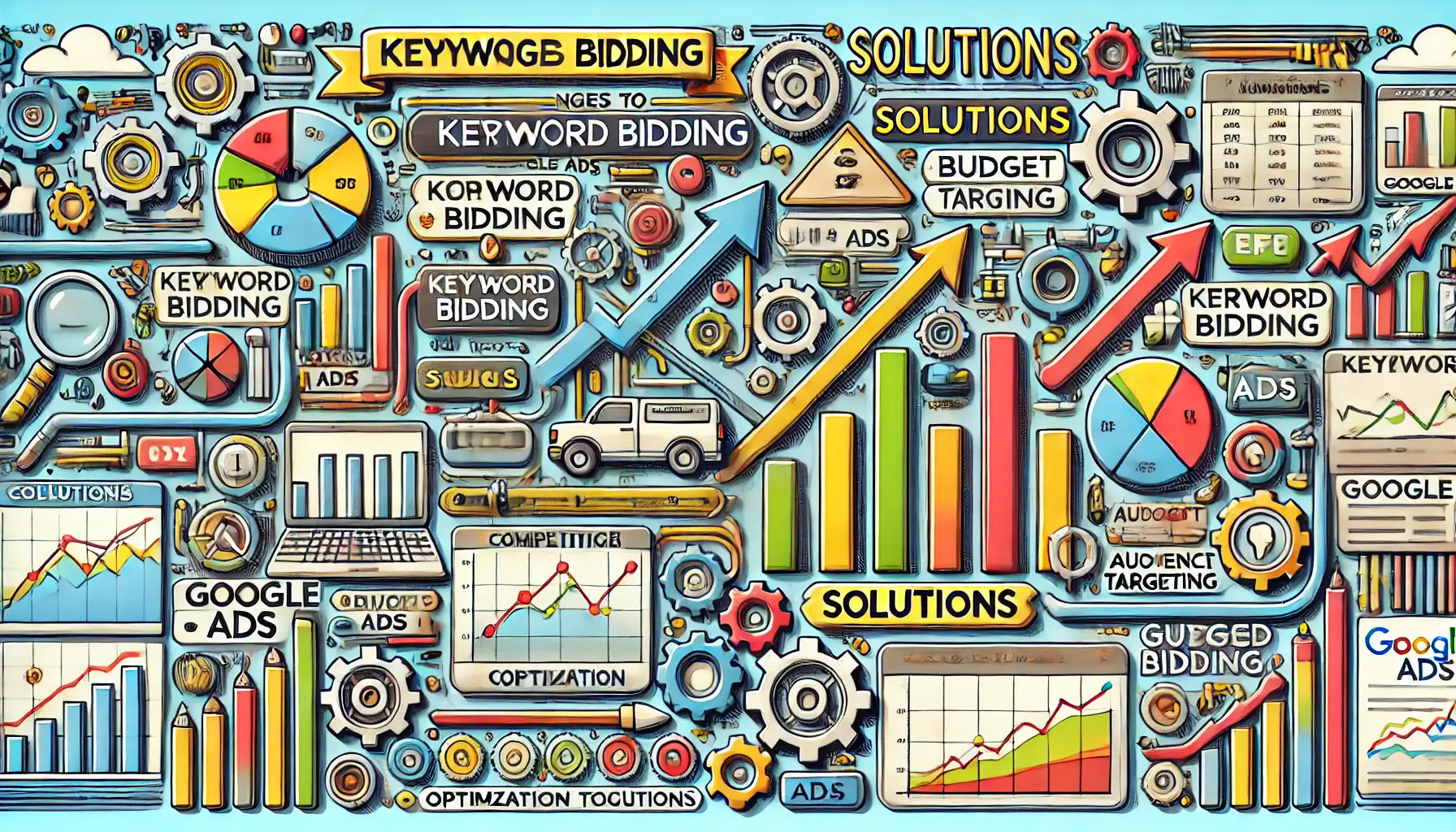
Exploring the common challenges and effective solutions in keyword bidding strategies.
Challenges and Solutions to Keyword Bidding
Keyword bidding in Google Ads has its fair share of challenges.
It’s either strong competition, budget limitations, or low-quality scores that can impact the effectiveness of your ads.
However, each of these challenges can be overcome with practical solutions.
Let’s explore the most common challenges in keyword bidding and how you can solve them.
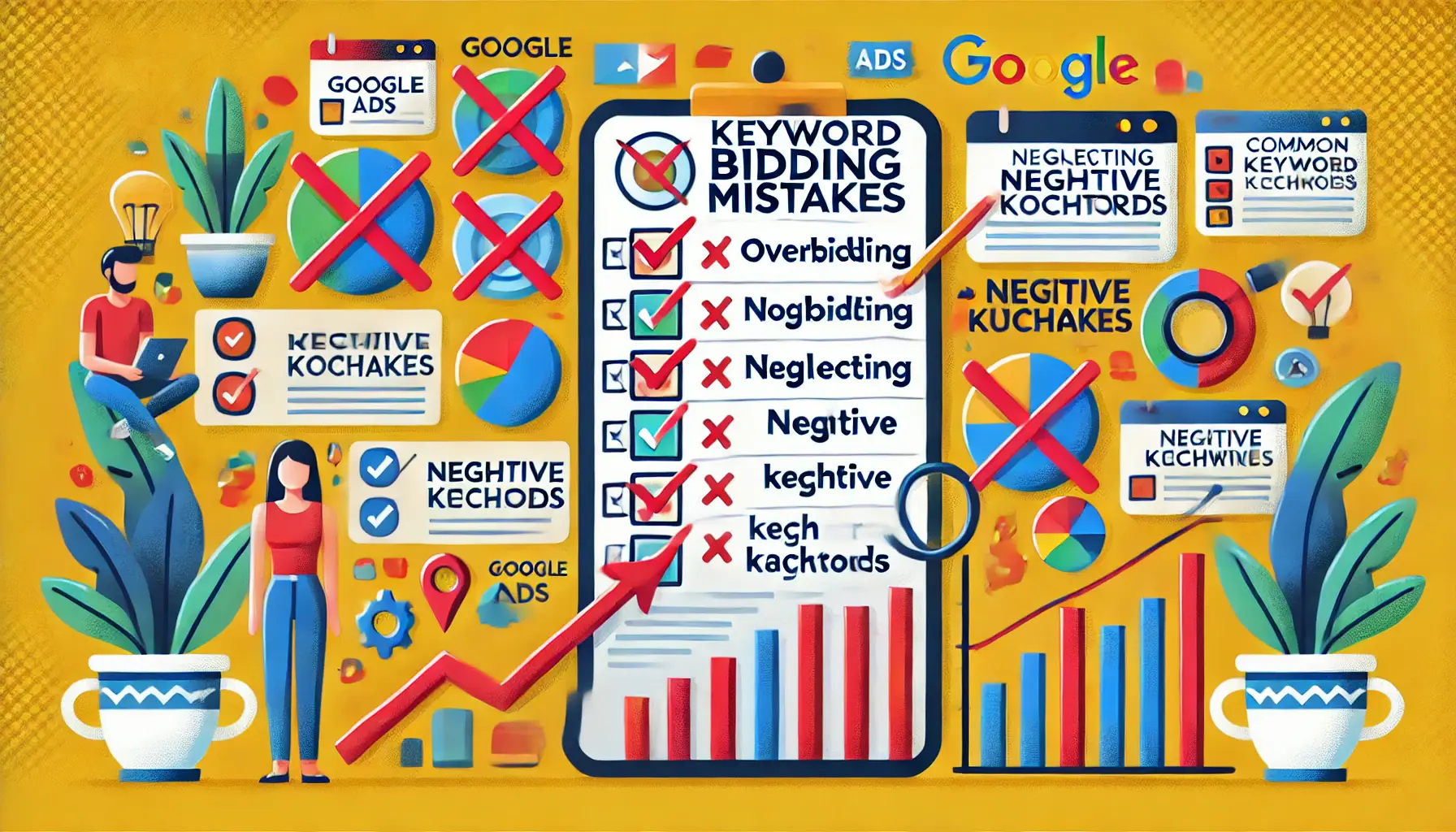
Identifying and avoiding common mistakes in keyword bidding strategies.
Common Keyword Bidding Mistakes
Many advertisers make critical mistakes in the setup process of keyword bids, which can significantly affect the success of a campaign.
Some of the most common mistakes include:
- Overbidding or underbidding: Setting bids too high will burn through your budget, while underbidding may cause your ads not to appear frequently enough to be effective.
- Failure to use negative keywords: This can lead to wasted spend on irrelevant clicks.
- Overusing broad match keywords: While they drive a lot of traffic, they may not be relevant enough, resulting in lower conversion rates.
- Neglecting bid adjustments: Not optimizing bids for devices, locations, or time of day limits your ability to reach the right audience at the right time.
To avoid these mistakes, it’s important to balance your budget, the relevance of your keywords, and ad performance in different segments.
Regularly reviewing performance data and making adjustments based on insights will improve your keyword bidding strategy.
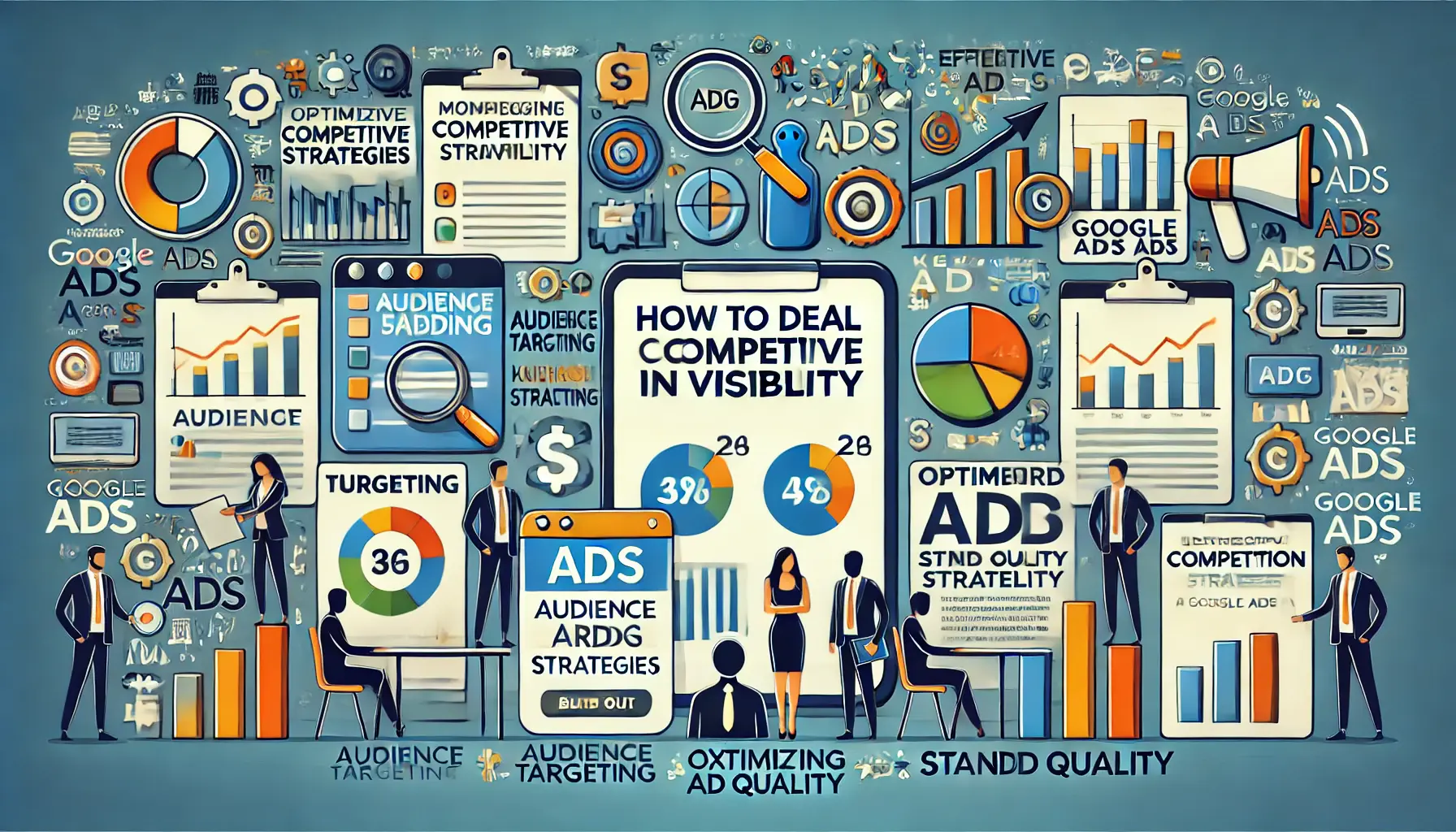
Effective strategies for managing competitive bidding in Google Ads.
How to Deal with Competitive Bidding
In highly competitive industries, keyword bidding can become expensive, as multiple advertisers compete for the same top-performing keywords.
This competition drives up CPC rates, making it harder to achieve a positive return on ad spend.

Proactive strategies to overcome challenges in keyword bidding.
Solutions to the Problem
To overcome this issue, try the following strategies:
- Focus on long-tail keywords: These keywords are less competitive, more specific, and cheaper. They help reduce costs while targeting relevant traffic.
- Improve ad quality: Google considers ad relevance and quality when deciding which ads to display. Creating high-quality ads with relevant keywords, compelling ad copy, and effective calls to action can earn you a higher ad rank without increasing bids.
- Use audience targeting: Instead of competing for broad, popular keywords, narrow your audience by selecting specific targeting options like demographics, interests, or remarketing lists.
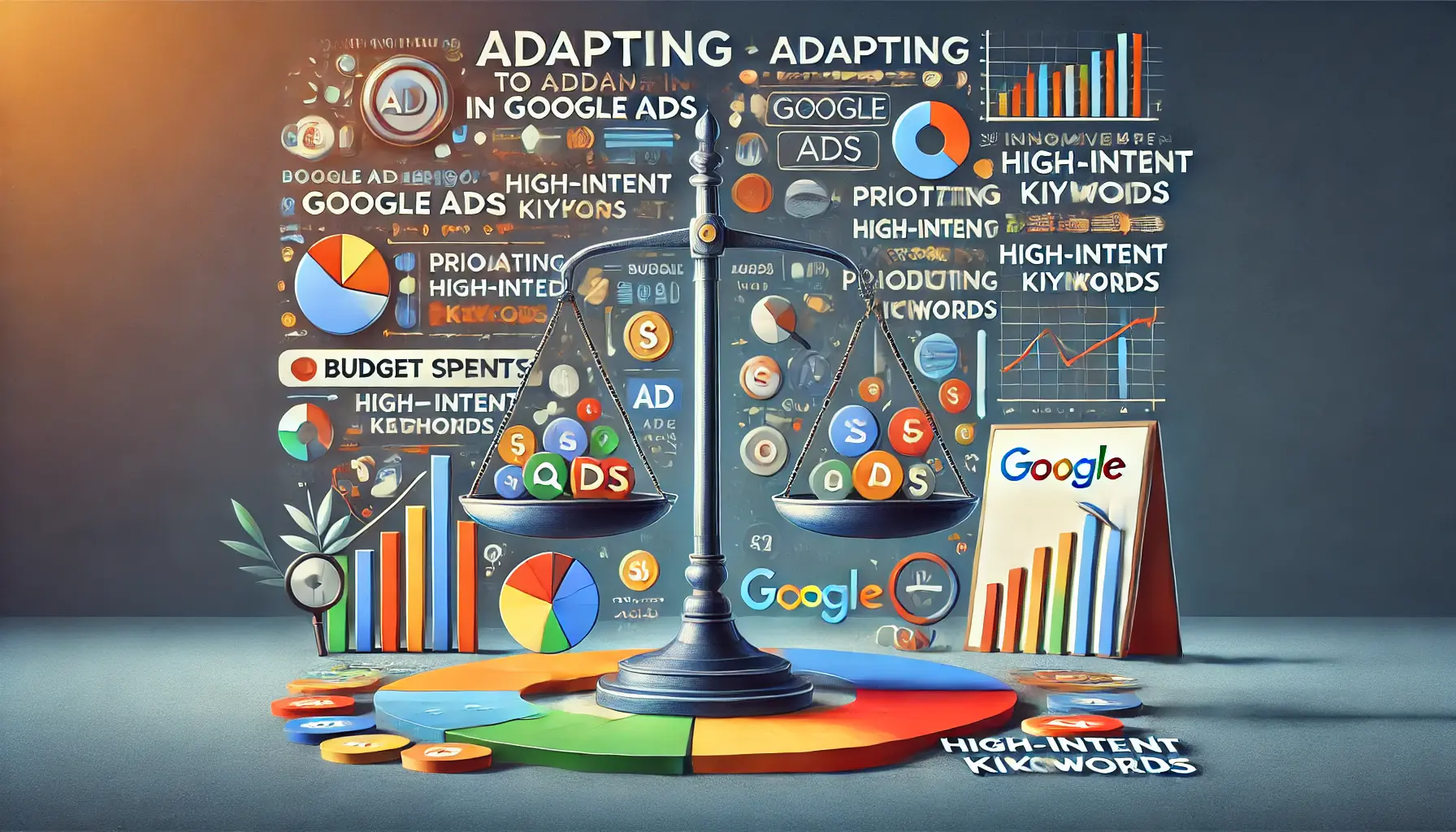
Strategies for optimizing ad spend within budget limitations.
Adapting to Budget Constraints
Even with budget constraints, you can still run successful campaigns with careful planning and optimization.
Here are some tips for optimizing your keyword bidding strategy under a limited budget:
- Prioritize high-intent keywords: Focus on keywords more likely to convert, even if they have a higher CPC. The goal should be to generate quality leads or sales rather than drive high volumes of unqualified traffic.
- Use automated bidding: Automated bidding strategies in Google Ads, like Maximize Conversions or Target CPA, adjust bids automatically to focus on the best keywords that drive conversions.
- Set bid caps: Apply bid caps to ensure you don’t overspend on keywords that could quickly deplete your budget.
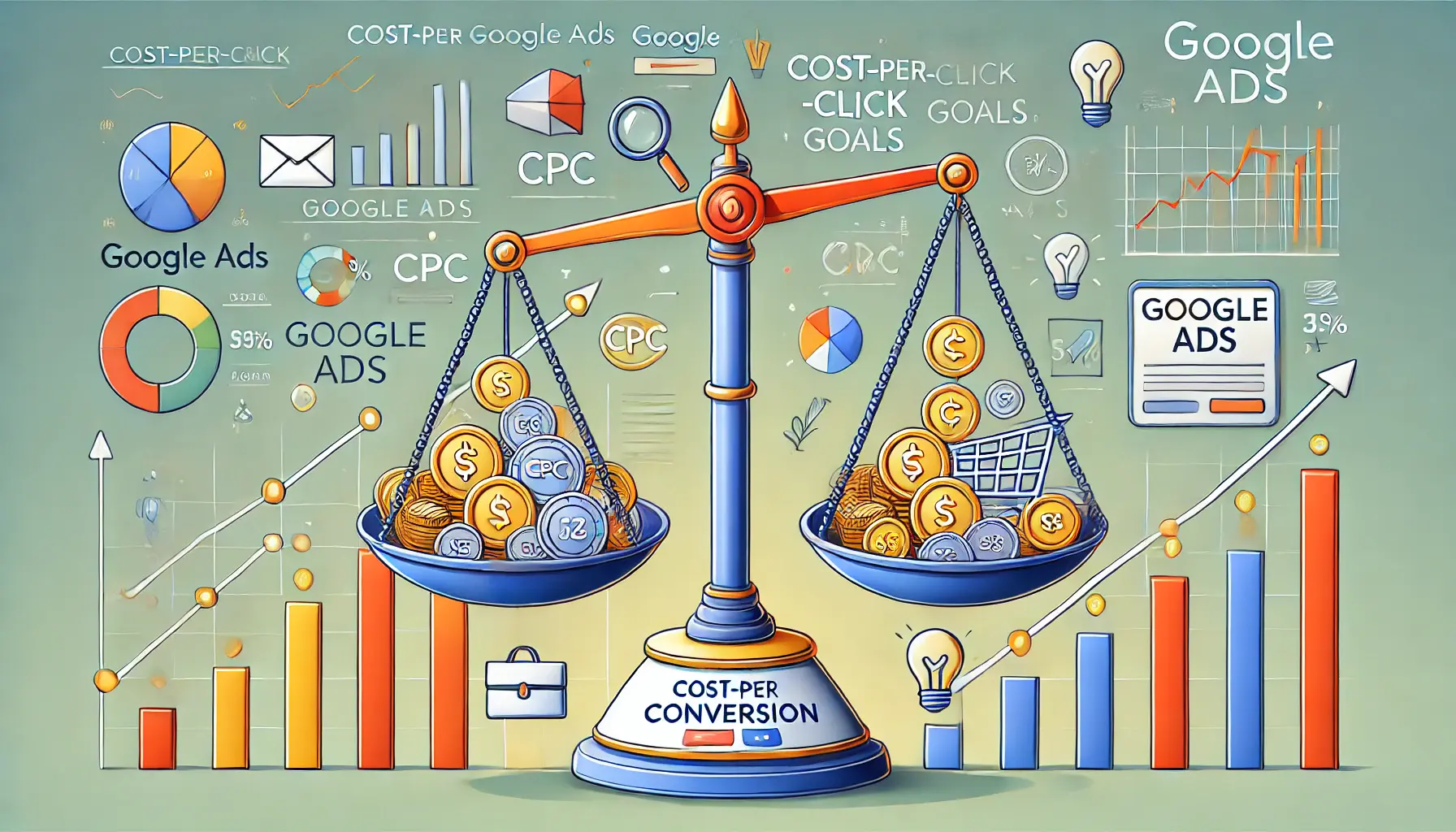
Strategies for achieving a balance between cost-per-click and conversion rates.
Balancing CPC and Conversion Goals
One of the biggest challenges in keyword bidding is finding the right balance between cost-per-click (CPC) and conversion goals.
Increasing your bids can lead to better ad placements, but it can also raise your CPC, reducing profitability.
To balance these two goals, consider:
- Test different bidding strategies: Experiment with both manual and automated bidding strategies to find the optimal mix for your goals. Using Target ROAS helps maximize returns while keeping CPCs in check.
- Monitor conversion metrics closely: Regularly track how your CPC affects key conversion metrics like cost-per-conversion and return on ad spend (ROAS). This data helps you decide when to increase or decrease bids.
- Increase bids for higher-value conversions: If certain keywords drive higher-value conversions, consider increasing bids on those terms to capture more qualified traffic.
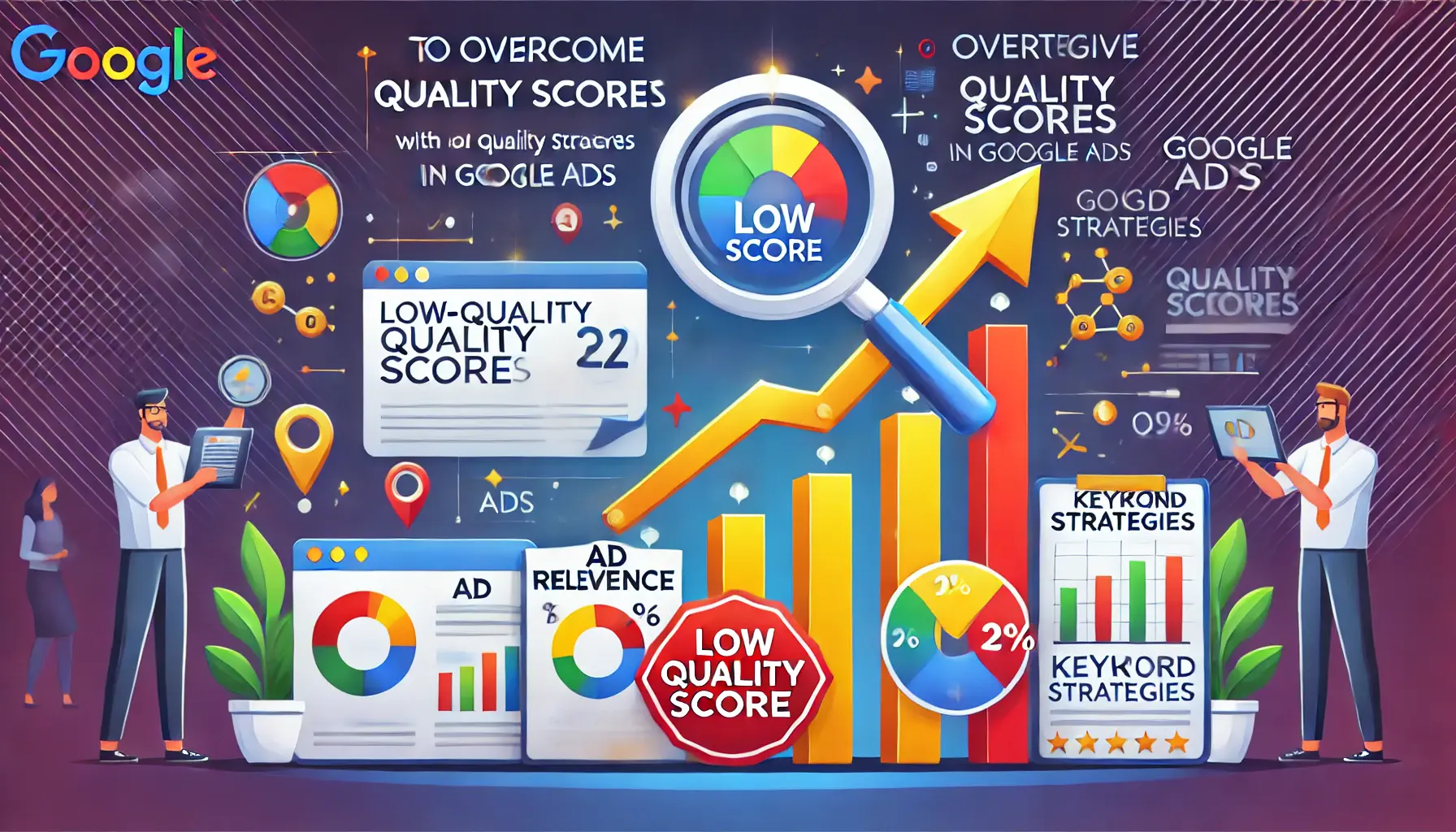
Strategies for improving low quality scores through strategic bidding.
Overcoming Low Quality Scores with Strategic Bidding
Low-quality scores can drive up CPCs and worsen ad placements, making it harder to run profitable campaigns.
To overcome this, focus on improving your quality score with strategic keyword bidding and ad optimization.
Here’s how you can improve your quality score:
- Create relevant ad copy: Ensure your ad copy matches the keywords you bid on and includes a compelling call to action.
- Improve landing page experience: Your landing page should be relevant, user-friendly, and optimized for mobile to improve both your quality score and conversion rates.
- Utilize ad extensions: Ad extensions like site links or callouts make your ads more relevant and can improve your click-through rates, boosting your quality score.
By understanding these challenges and applying strategic solutions, you can improve your keyword bidding approach and enhance your results from Google Ads campaigns.
Balancing CPC and conversion goals requires careful tracking and strategy adjustments.
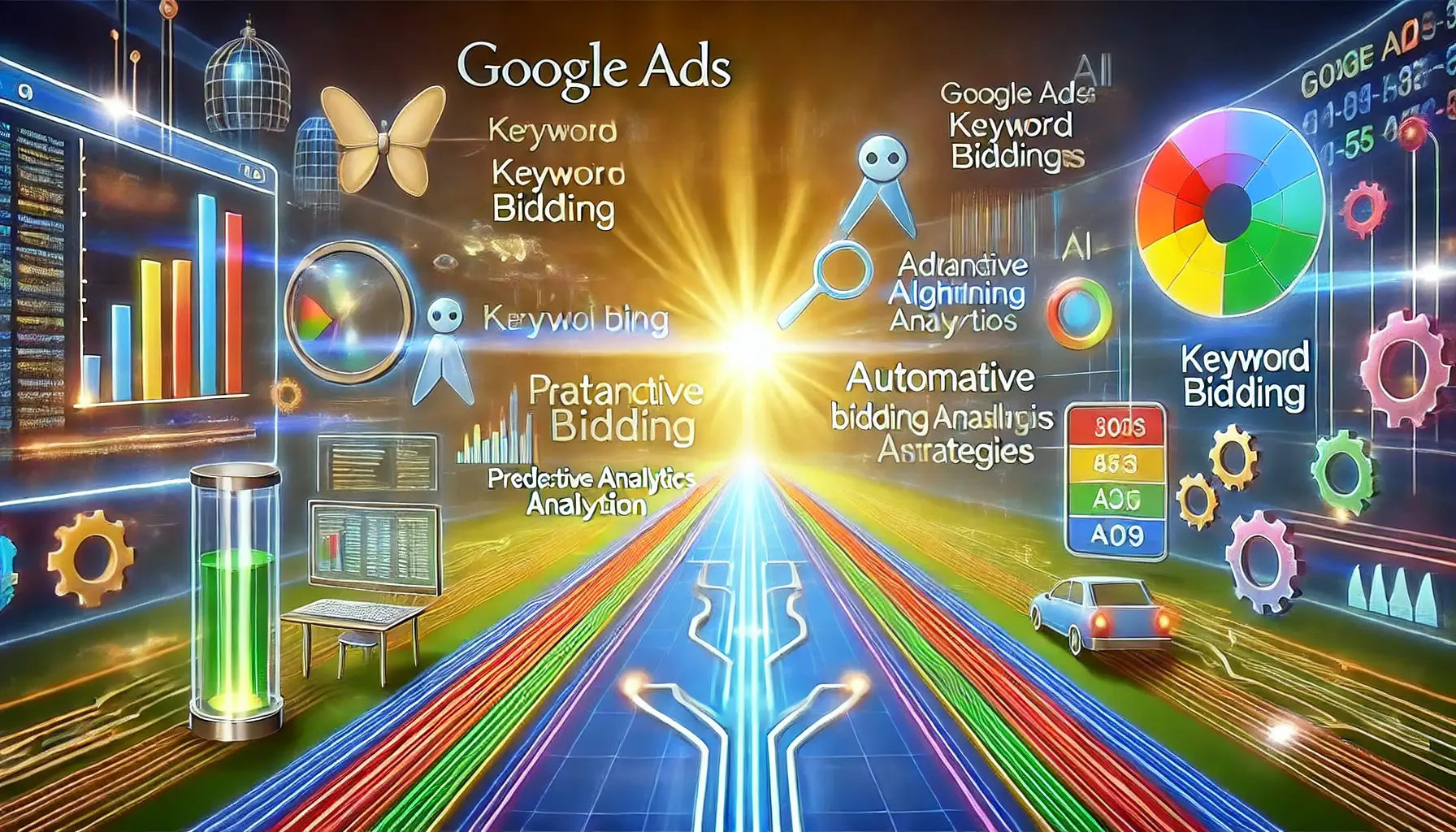
Exploring the future landscape of keyword bidding in Google Ads.
What Google Ads’ Keyword Bidding Looks Like in the Future
Digital advertising continues to evolve, and so does keyword bidding on Google Ads.
With advancements in artificial intelligence (AI) and machine learning (ML), alongside ever-changing user behaviors, the future of keyword bidding looks bright but also challenging.
In this section, we’ll explore key trends and predictions that will influence the future of keyword bidding and how to position your campaigns to stay competitive in the market.
AI-powered solutions, such as Google’s Smart Bidding, use machine learning to dynamically and automatically optimize bids based on thousands of signals.
These signals include everything from device type and location to time of day and user behavior, all analyzed in real time to calculate the optimal bid for each ad impression.
As AI algorithms become more sophisticated, they will play an even more central role in the future of keyword bidding.
This will likely lead to highly automated, predictive bidding systems that require little or no human interference, making campaigns more effective and data-driven.
Businesses will save hours on manual bid adjustments, freeing up time to focus on strategy and creative ad copy.
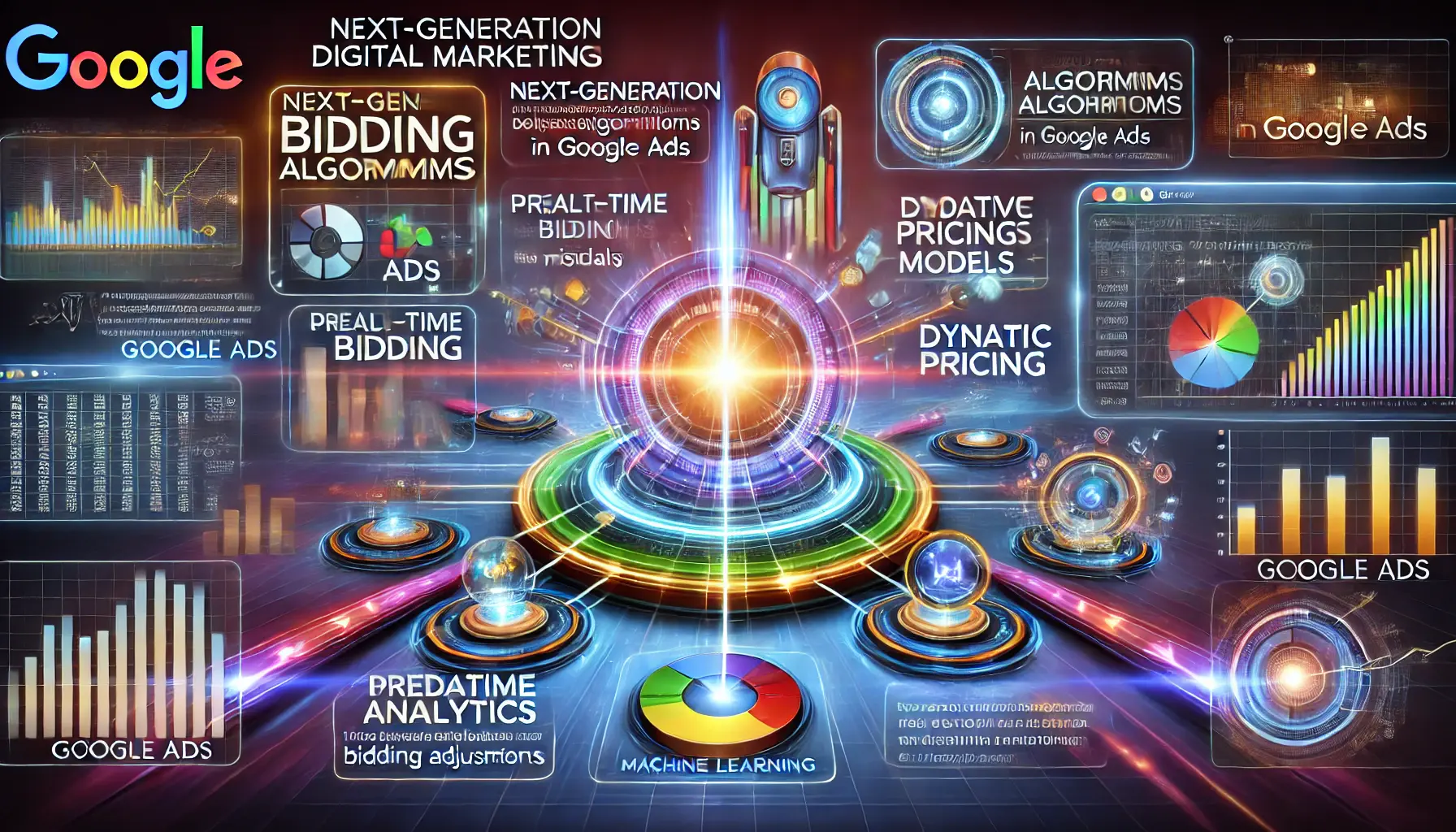
Exploring the future of bidding algorithms in Google Ads.
Next-Generation Predictions for Bidding Algorithms
The next generation of bidding algorithms will bring advanced functionality and the real-time processing of vast amounts of data.
With automation becoming more prevalent, advertisers will have access to more intelligent and adaptive bidding strategies that adjust to market conditions faster than ever before.
Some predictions for future bidding algorithms include:
- Hyper-personalization: Bidding systems will take into account granular data about user preferences and behaviors to further personalize ads and bids on an individual level.
- Dynamic pricing models: Algorithms may start adjusting bids based on fluctuating demand, similar to how dynamic pricing works in industries like travel and hospitality.
- Cross-platform integration: Advertisers will be able to manage and optimize bids across multiple platforms, such as Google Ads and social media, from a unified interface.
As these advancements unfold, it’s crucial for businesses to stay informed and embrace the changes that come with evolving technology.
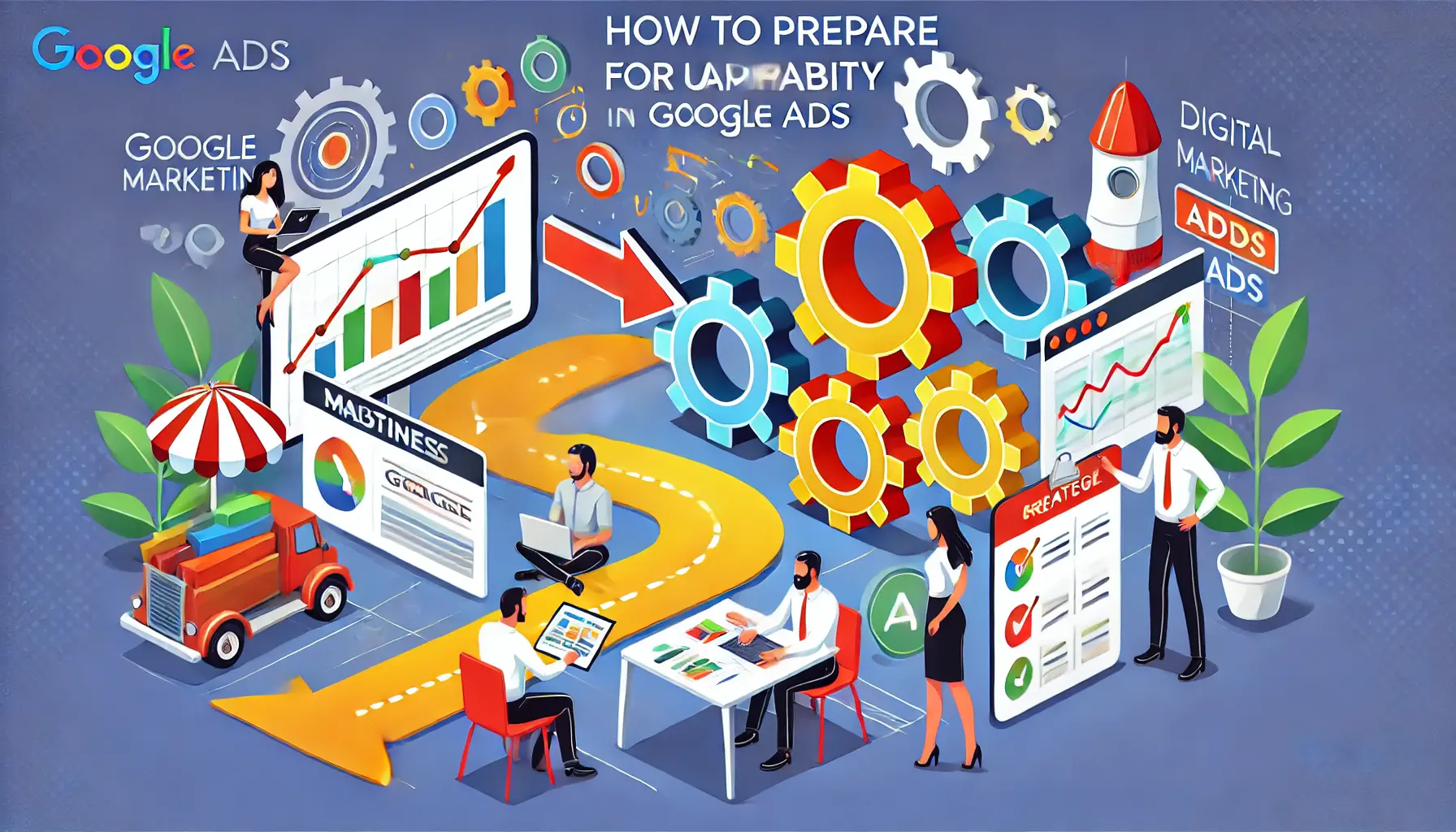
Strategies for adapting to upcoming changes in Google Ads.
How to Prepare for Upcoming Changes in Google Ads
Businesses need to start adjusting their strategies to fit the future landscape of keyword bidding.
Here are some ways to keep your campaigns competitive as the industry continues to develop:
- Invest in automation: Adopt automated bidding strategies, such as Smart Bidding, which optimizes your ads in real time for the best results using machine learning. Automation will become even more important as AI-powered systems increasingly rely on real-time insights.
- Focus on data-driven decision-making: Utilize advanced analytics tools to track user behavior, ad performance, and keyword bidding effectiveness. Data-driven decisions will be key to staying competitive in an AI-powered world.
- Stay agile: Given the ever-changing nature of bidding algorithms, it’s important to remain flexible and open to testing new strategies. Continuously experiment with different bidding models, keywords, and audience targeting methods to find what works best for your business.
By embracing automation, leveraging data, and staying flexible, businesses can prepare for the future of keyword bidding and ensure their Google Ads campaigns remain effective in an ever-changing digital landscape.
AI-powered solutions will drive more predictive bidding strategies with minimal human input.
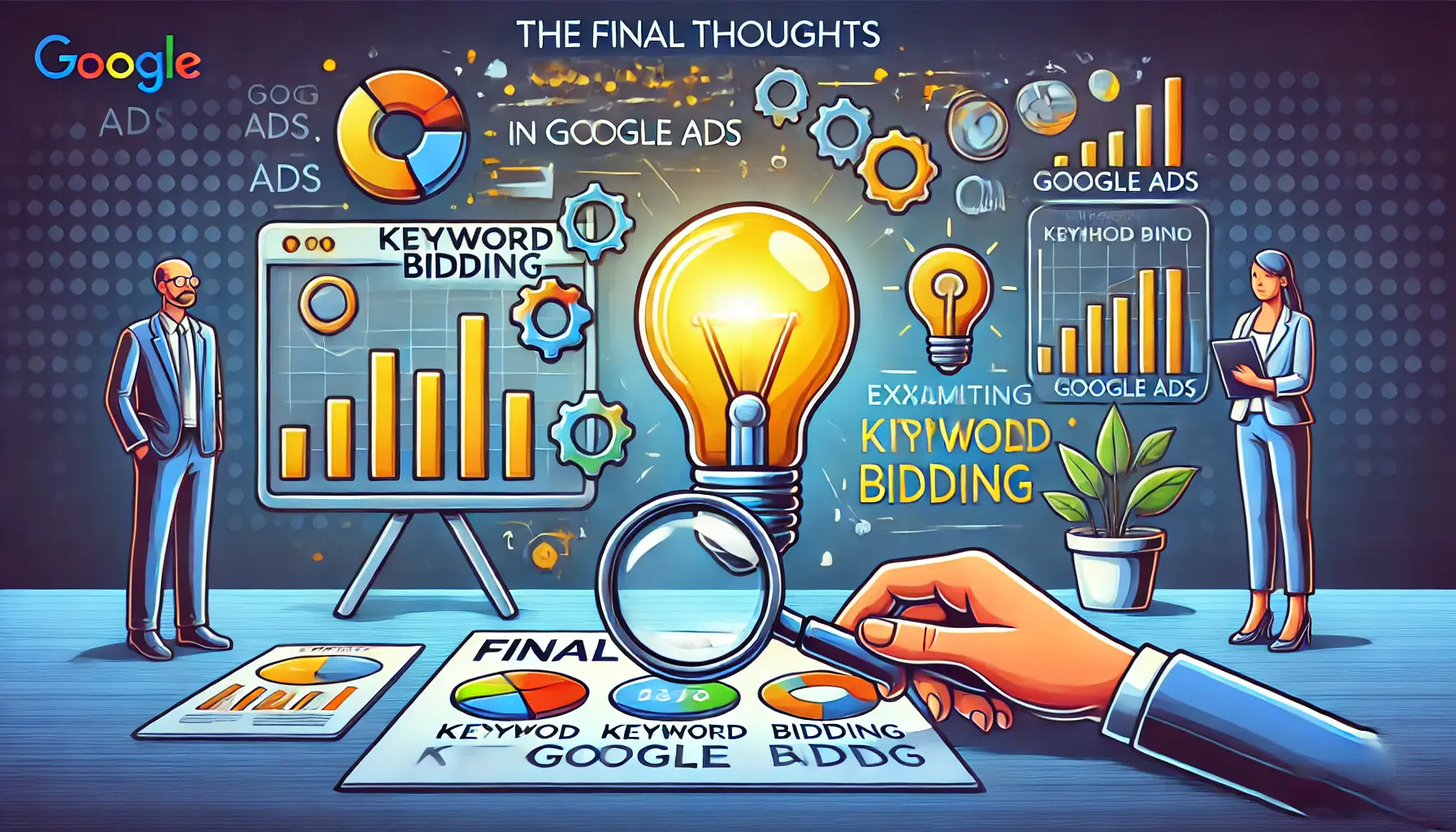
Conclusions and insights on keyword bidding strategies in Google Ads.
Final Words on Keyword Bidding in Google Ads
Keyword bidding in Google Ads is not just about naming a price for ad placements; it’s a strategic process of continuous adjustment that requires an understanding of how algorithms and user behaviors interact.
With advancements in artificial intelligence (AI) and machine learning (ML), the future of keyword bidding presents numerous opportunities for businesses to create more efficient and data-driven campaigns.
Throughout this article, we’ve covered the essential elements of successful keyword bidding strategies.
From understanding the basics of bidding to overcoming challenges, and preparing with AI-powered tools, businesses can significantly enhance their Google Ads campaigns by applying these strategies.
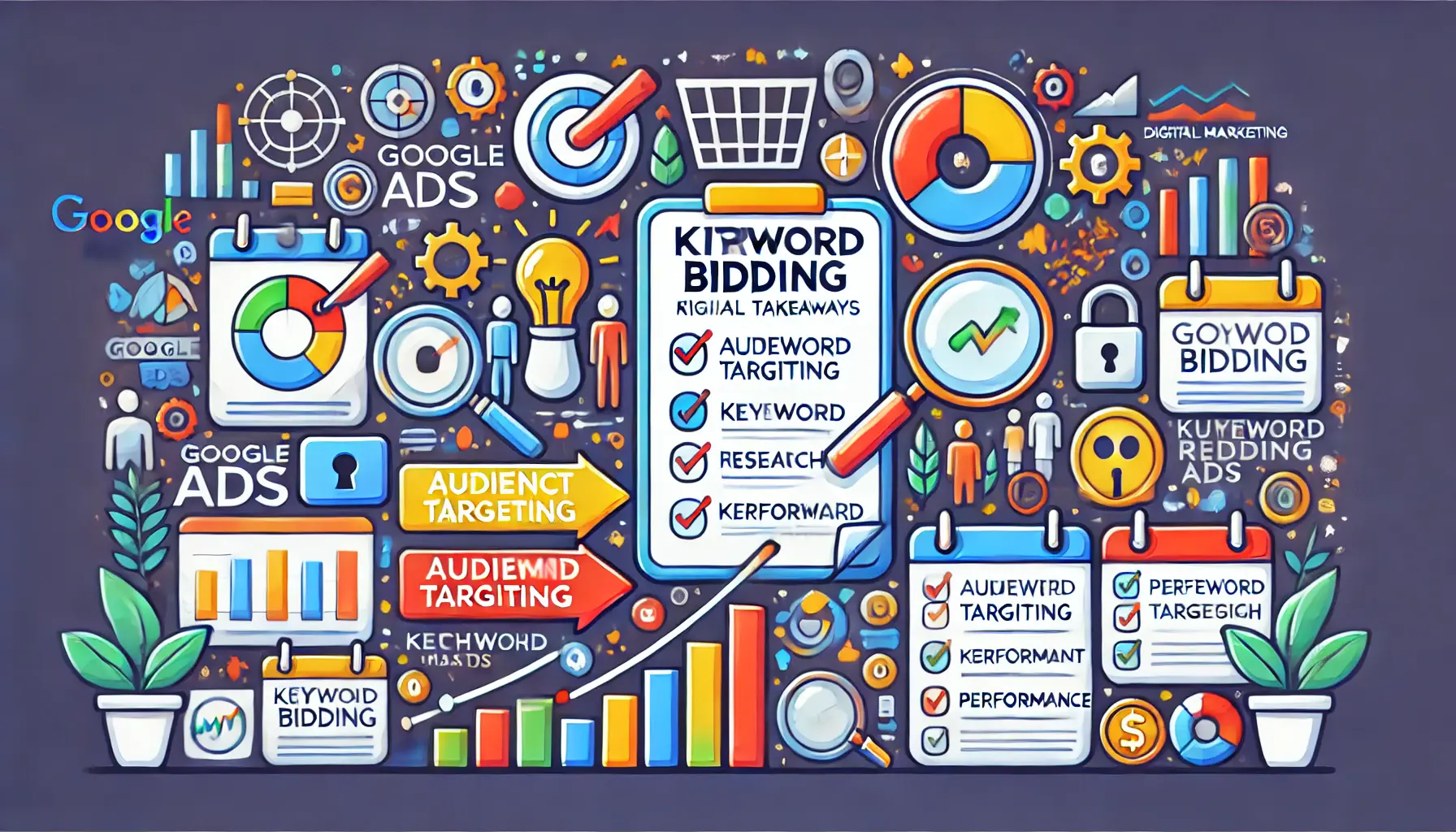
Important strategies for achieving success in keyword bidding.
Key Takeaways for Successful Keyword Bidding
- Optimize relevance: Choosing the right keywords is fundamental to your success. Balancing high-intent and relevant keywords with user search behavior ensures maximum return on investment (ROI).
- Utilize negative keywords: Avoid wasted spend by filtering out irrelevant traffic, ensuring your ads reach the right audience.
- Embrace innovative bidding: Automation and AI-driven solutions, like Smart Bidding, offer powerful real-time bid optimization with less manual effort, allowing you to focus on strategy.
- Prepare for the future: Stay open to new technologies and remain agile in your approach. The future of keyword bidding will increasingly rely on machine learning and real-time data, so businesses must be flexible and ready to adapt.

Exploring the advancements and future possibilities in keyword bidding.
Embracing the Future of Keyword Bidding
Looking ahead, the role of automation, AI, and advanced algorithms in keyword bidding is only set to grow.
Advertisers who invest in these technologies now will be better equipped to handle the evolving digital landscape.
Whether it’s hyper-personalization, dynamic pricing models, or cross-platform bidding, the future offers many tools for businesses to optimize their campaigns more effectively.
By staying informed, leveraging data, and embracing new technologies, businesses can stay ahead in the ever-changing world of Google Ads.
Flexibility is key—continuously testing and refining your strategies will help you keep pace with the latest innovations in keyword bidding.
In the long run, businesses that evolve their keyword bidding strategies will be in a better position to achieve long-term success with their Google Ads campaigns, maximizing both their budget and impact in an increasingly competitive digital marketplace.
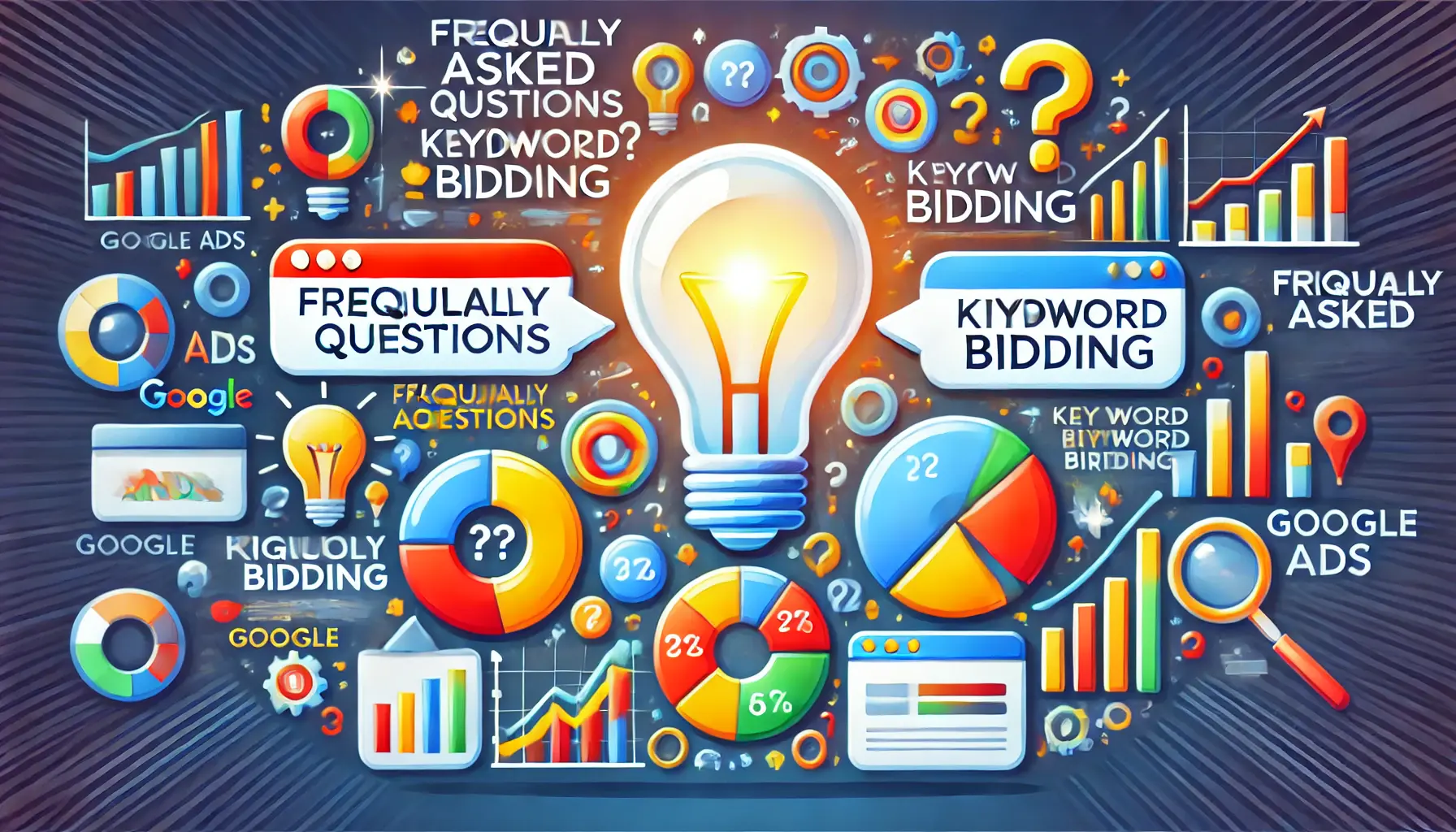
Common queries and insights about keyword bidding in Google Ads.
Your campaigns can be managed by an agency specialized in Google Ads, check out our service page.
Keyword Bidding in Google Ads – Frequently Asked Questions
Below are some common questions related to keyword bidding in Google Ads, covering various aspects of bidding strategies, tools, and best practices for advertisers.
The highest bids, combined with ad quality, determine the ad’s placement in search results.
Smart Bidding uses machine learning to automatically optimize bids based on real-time data, while manual bidding allows advertisers to set and control bids manually for each keyword without algorithmic intervention.
Negative keywords prevent your ads from showing up for irrelevant search queries, ensuring that you avoid wasted spend by making sure your ads are not shown to users unlikely to convert.
Long-tail keywords are more specific and have lower competition, making them cost-effective.
They often result in higher conversion rates as they target users further along in the buying cycle.
AI-driven tools like Smart Bidding use real-time data to automatically adjust bids, optimizing performance based on signals such as user behavior, device type, and location for greater efficiency.
Yes, automated bidding strategies, including Smart Bidding, help small businesses maximize their ad spend through machine learning, which aims to increase conversions or return on ad spend while reducing manual bid adjustments.
You should review and update your keyword bidding strategy regularly, especially when performance metrics, user behavior trends, or developments in tools and features within Google Ads change.
Bid adjustments allow advertisers to modify bids based on factors like device type, location, and time of day.
This ensures that ads are shown to the most relevant audience at the optimal time.
CPC in keyword bidding is influenced by factors such as competition for the keyword, your quality score, bid amount, and the relevance of your ad and landing page to the search query.
